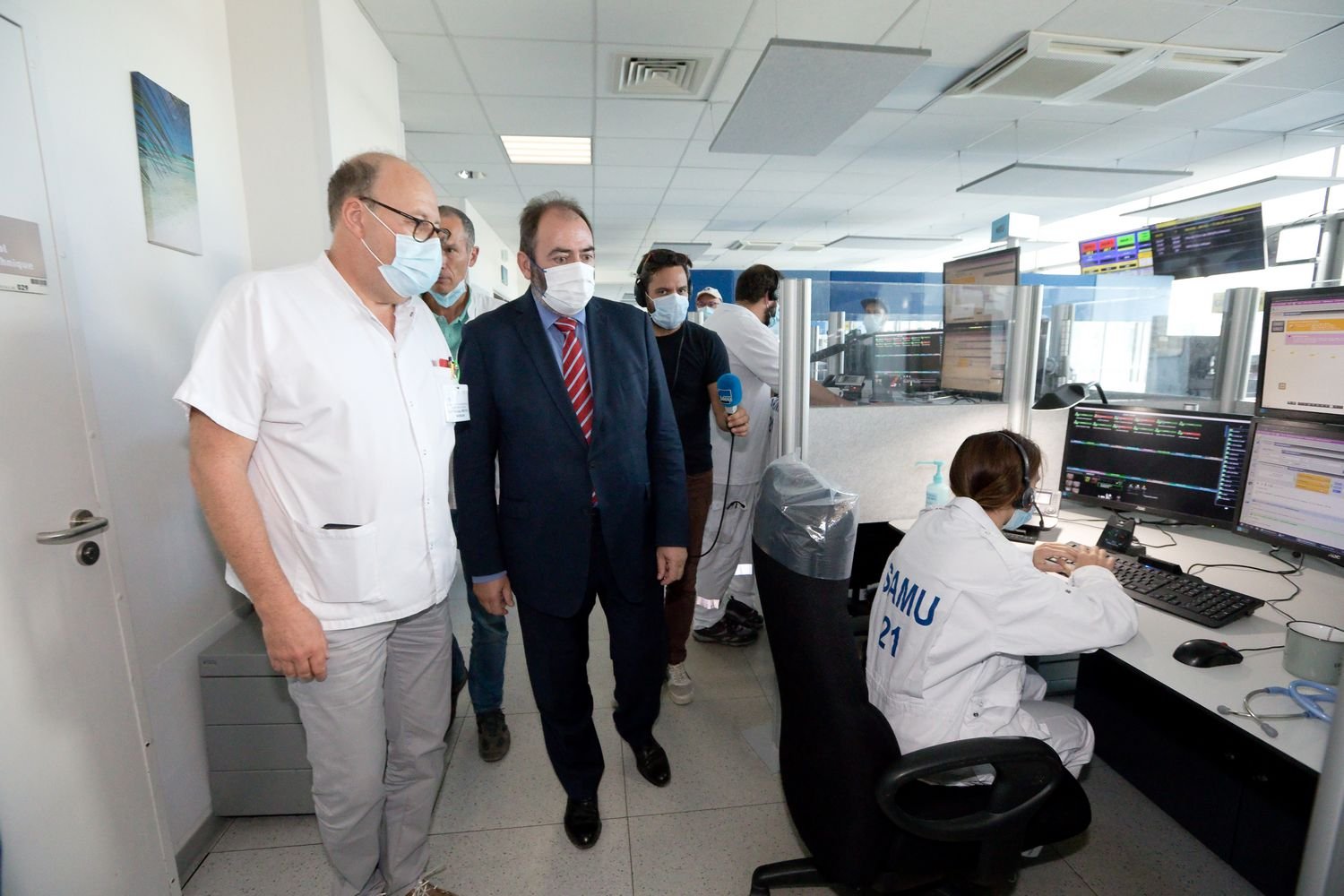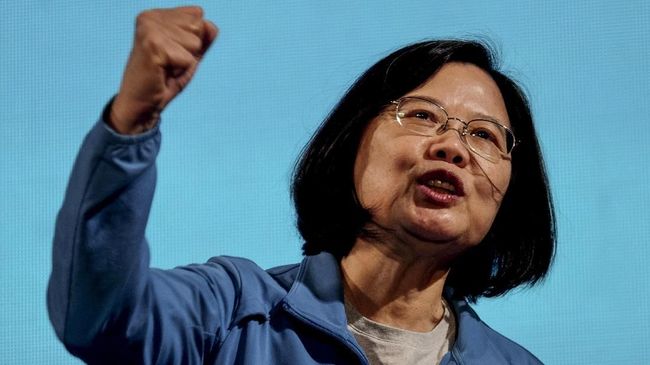The new Minister of Health has chosen Côte-d’Or for his first official trip to the region this Friday, July 8. The care access service, tested by the CHU Dijon Bourgogne, aims to reduce emergency room visits by 30%.
Ahead of the last presidential election, Emmanuel Macron asked François Braun, emergency doctor at CHR Metz-Thionville and president of Samu Urgences de France, to make proposals to contribute to the health aspect of his electoral program.
Last June, the re-elected President of the Republic entrusted the emergency doctor with a “flash mission” on the shortcomings of the French hospital system. In July 2022, François Braun was appointed Minister of Health and Prevention in the second government of Elizabeth Borne.
It is therefore a meteoric rise in the political world for this 60-year-old man who is interested in emergency medicine and war medicine by family tradition. His father, in particular, was chief medical officer of the firefighters of the Territory of Belfort.
Regulate access to emergencies
One of the main points of its proposals concerns the regulation of access to the emergency services of health establishments in order to treat vital emergencies as a priority by directing other patients to city doctors, possibly installed near the emergencies, in conjunction with the hospital.
To highlight this aspect, the new Minister of Health went this Friday, July 8, 2022 to the CHU Dijon Bourgogne which has been experimenting with such regulation since June 2021 via the SAS device for access to care service. This was the minister’s first trip outside Île-de-France since his appointment.
A university health center in the Mail district
The trip began with a visit to the University House of Health and Primary Care (MUSSP) in Chenôve, accompanied by a time for discussion with the teams.
Inaugurated in 2015 in the Mail district, falling under city policy, the University Health Center was created following an initiative by Doctor Jean-Noël Beis. In 900 m² of premises, it brings together general practitioners, nurses, a midwife, a dentist or even a social worker from the City of Chenôve.
“The idea is to create a real health center, by collaborating with all health professionals, and to allow a better course of care, thanks to a coordinated care of patients including more prevention”, indicated the City of Chenove during the inauguration.
Among the partners, we find the University of Burgundy, the Regional Health Agency Bourgogne-Franche-Comté, the Mutualité Française or the Health Insurance.
“Meeting the health needs of a territory”
“This complementarity between health professionals, between the city and the hospital, with the university, with the same goal which is to meet the health needs of the population, this example is truly remarkable”, declared François Braun to the end of his visit to the MUSSP in the presence in particular of Thierry Falconnet (PS), mayor of Chenôve.
The instructions of the ARS, declined from the “flash mission”, should soon be disseminated in order to facilitate the emergence of such structures throughout France.
“This is one of the solutions that really meet the health needs of a territory and a population,” insisted the minister in an equally “flash” intervention.
The Dijon University Hospital benefits from investments from the Ségur de la Santé
Very rhythmic, the trip therefore continued at the CHU Dijon Bourgogne where a large delegation accompanied the minister with, in particular, the prefect of the Côte-d’Or Fabien Sudry, the director general of the Regional Health Agency Bourgogne- Franche-Comté Pierre Pribile, the president of the University of Burgundy Alain Bonnin, the deputies Didier Martin (Renaissance) and Fadila Khattabi (Renaissance) as well as Benoît Bordat (Progressive Federation) for whom it was the first participation in an official trip as a parliamentarian.
The Minister was welcomed by Nadiège Baille, Director General of the health establishment, who began by presenting the current achievements related to the investments of the Ségur de la Santé: building extension to create beds and energy renovation in particular.
The SAS to reduce emergency room visits by 30%
The care access service (SAS) was presented by Doctor Philippe Dreyfus who recalled that the reflection of the CHU Dijon Bourgogne on this subject went back to the Pact for the overhaul of emergencies established at national level by the former Minister Agnès Buzyn in 2019.
The Dijon CHU is part of the objective of reducing emergency room visits by 30% – particularly for patients who may be required to be in the care of city medicine -, reducing the time to pick up the number of 15, improving the care pathway and developing specialized care such as dental emergencies, “social problems” and geriatrics.
The care access service of the CHU Dijon Bourgogne started in June 2021 covering the departments of Côte-d’Or and Nièvre. During the first half of 2021, emergency room attendance increased by 20% compared to 2019 (while calls increased by 2.7%). During the second half, after the commissioning of the SAS, the increase was only 1% (despite a 13% increase in calls).
To do this, medical regulation assistants (ARM) have been recruited, up to 13.5 full-time equivalents. To continue to develop such positions, a training center will open next September as part of a partnership with the hospitals of Auxerre and Chalon-sur-Saône.
The number of telephone lines has been doubled, the geolocation of calls has been implemented as well as a medical assessment tool on a digital tablet with a common format between the CHU and the SDIS 21. The medical transport offer has been increased by 30 %.
Today, 83% of calls to Center 15 are answered within 30 seconds and 94% within one minute.
Meetings behind closed doors
Before leaving the CHU, François Braun had a time of discussion with Doctor Sébastien Mirek, anesthesiologist-resuscitator and “health relay” for Emmanuel Macron during the presidential campaign (read our article).
In addition, during the afternoon, the Minister of Health exchanged behind closed doors respectively with François Rebsamen (PS, Progressive Federation), mayor of Dijon, and with François Sauvadet (LCOP), president of the departmental council of the Côte -Golden.
Jean-Christophe Tardivon
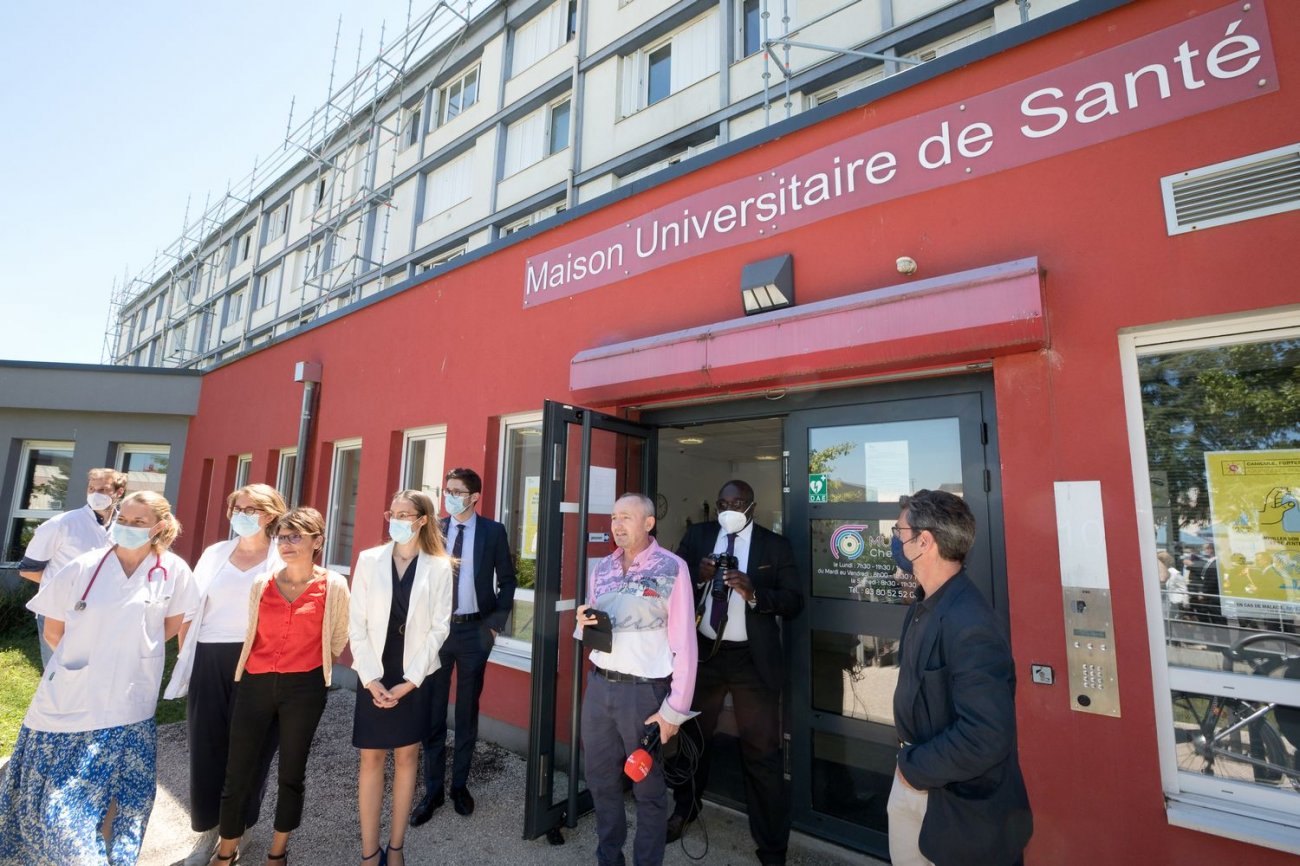
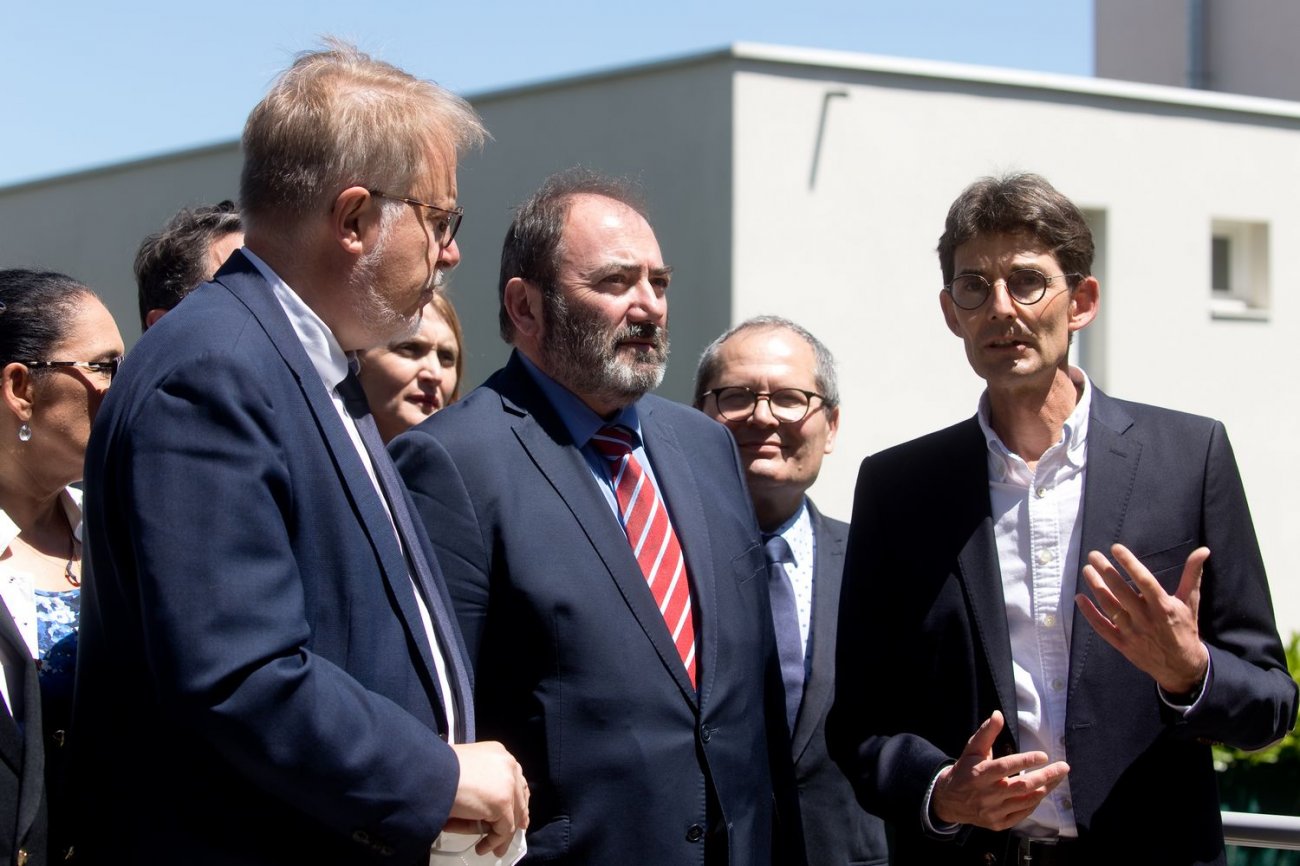
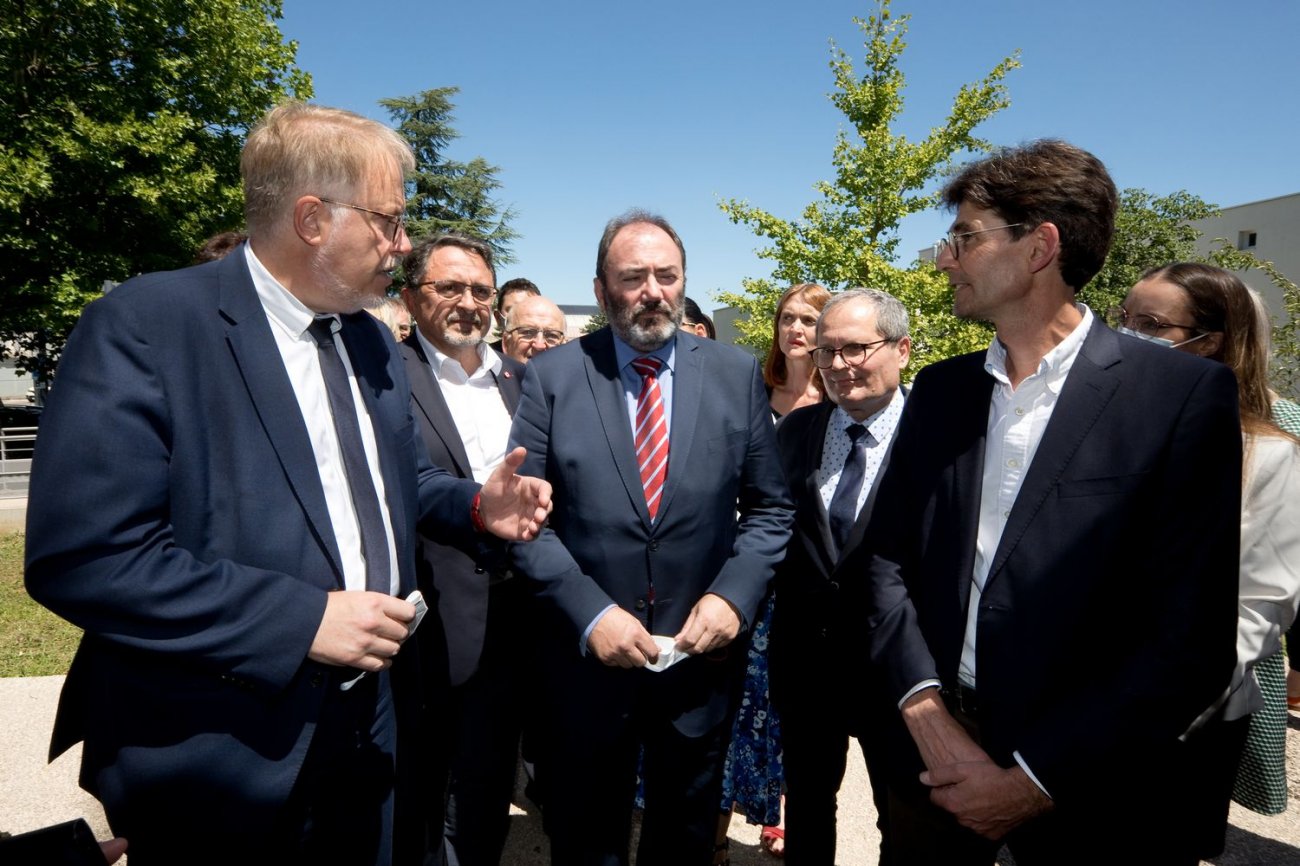
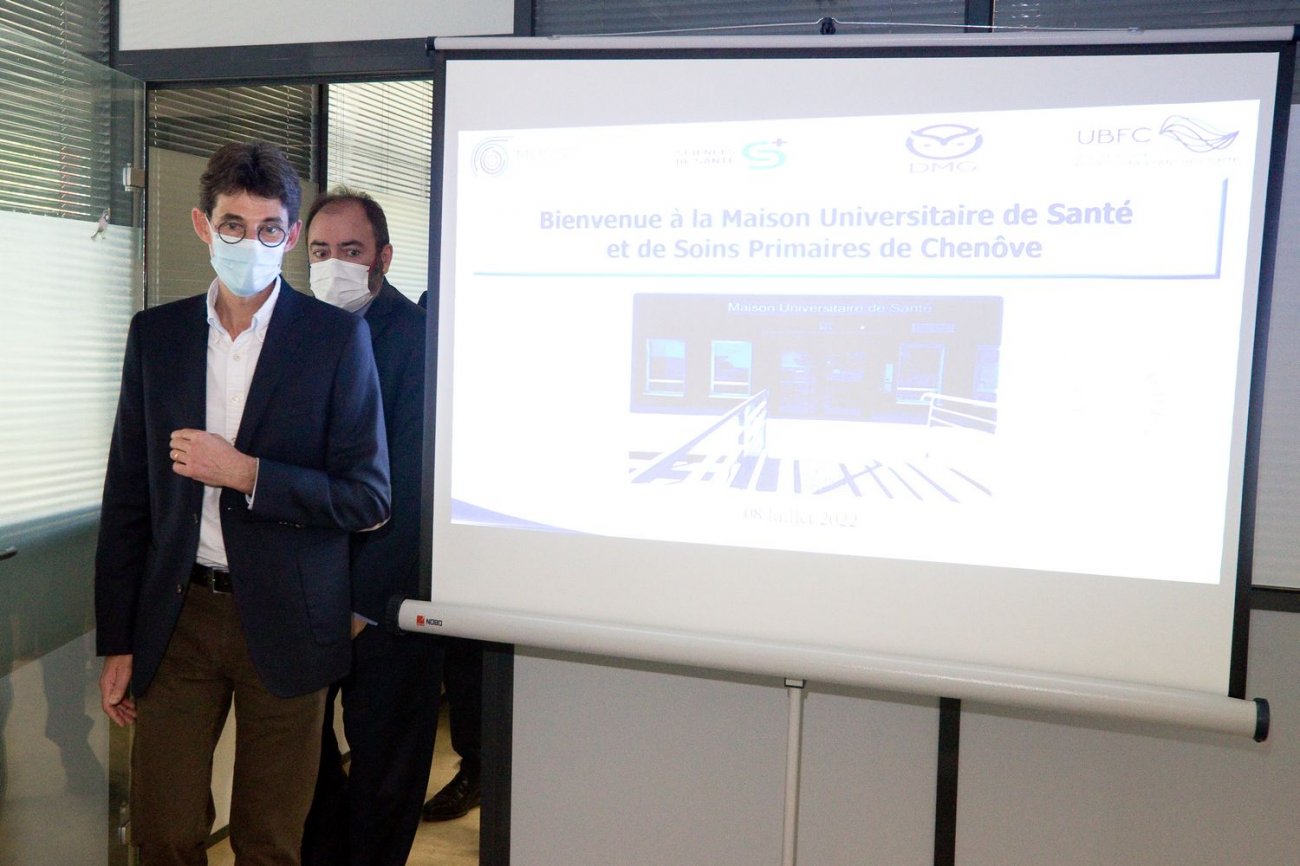
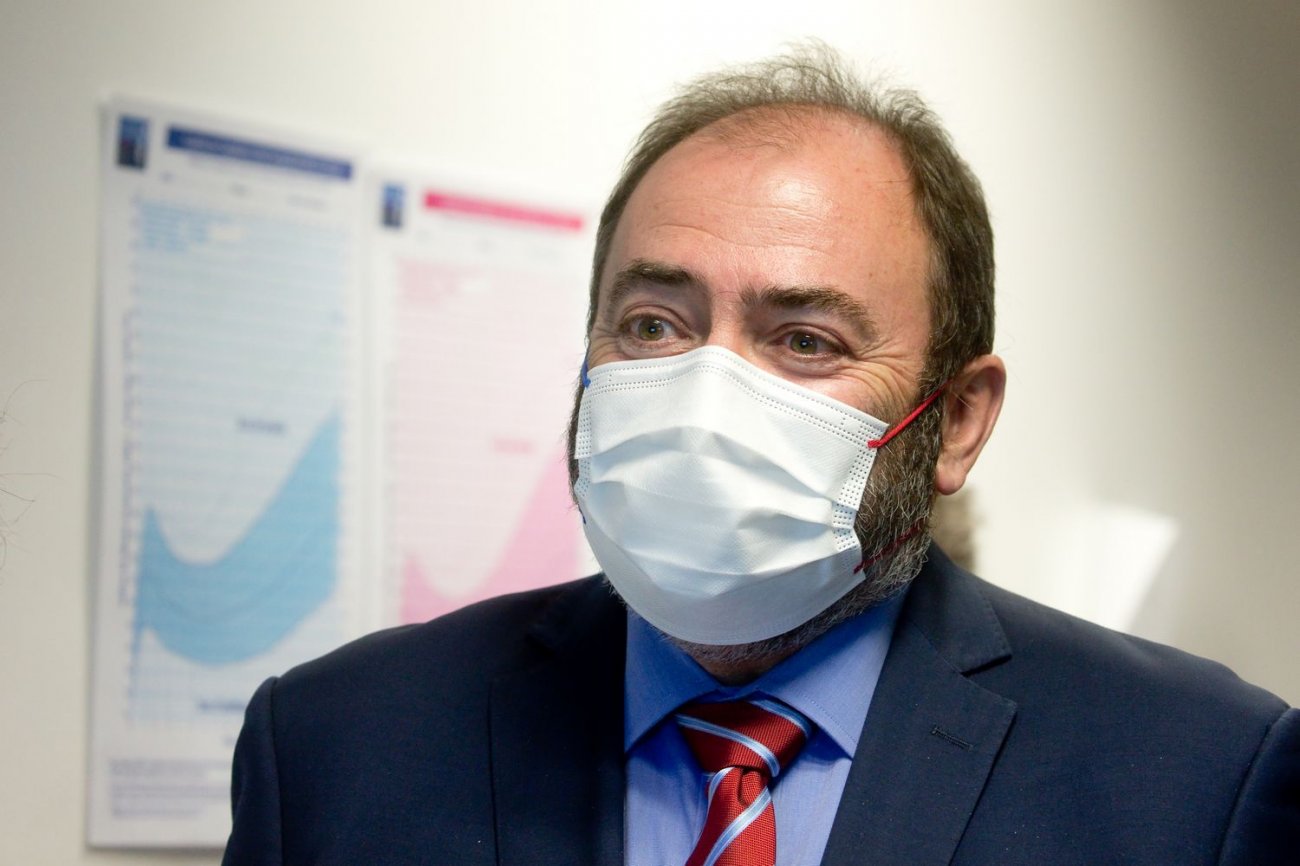
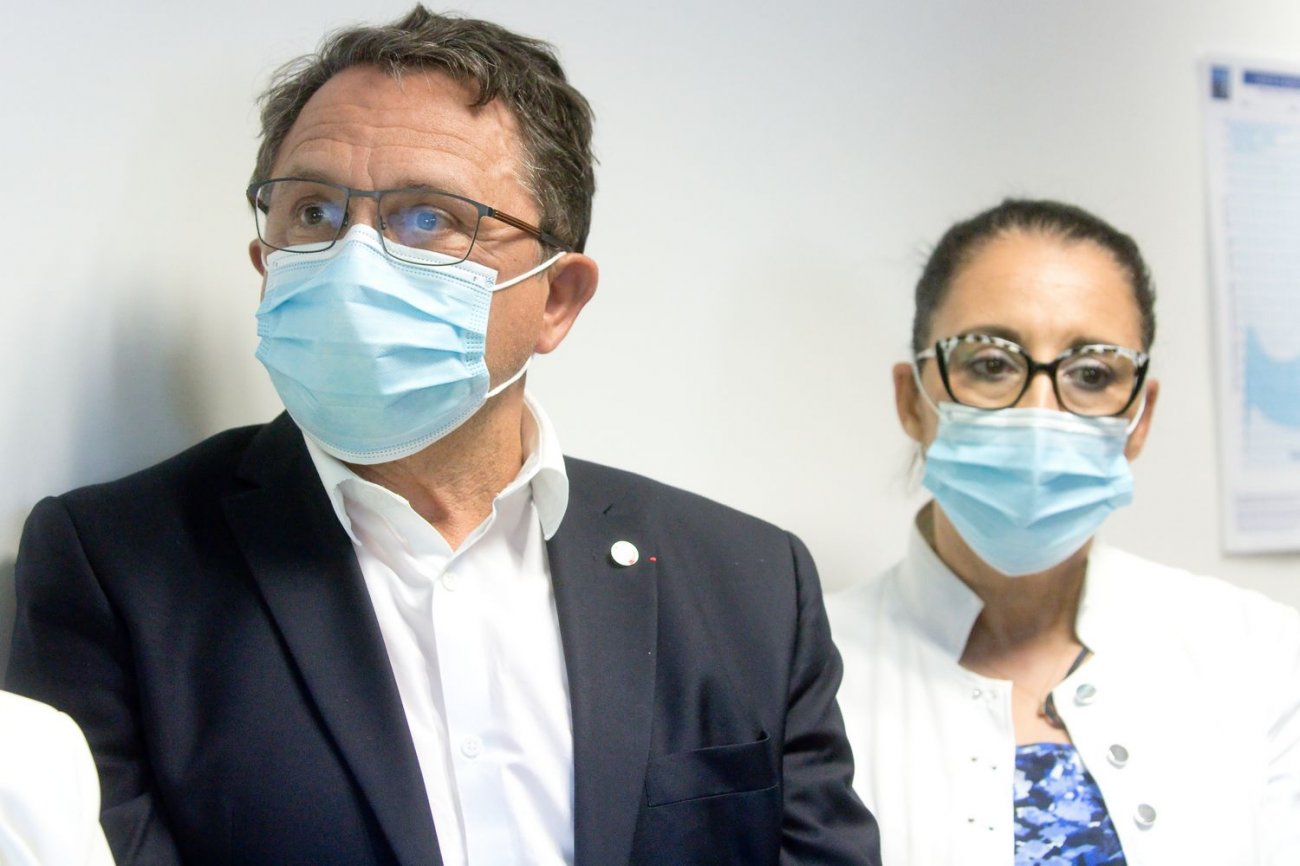
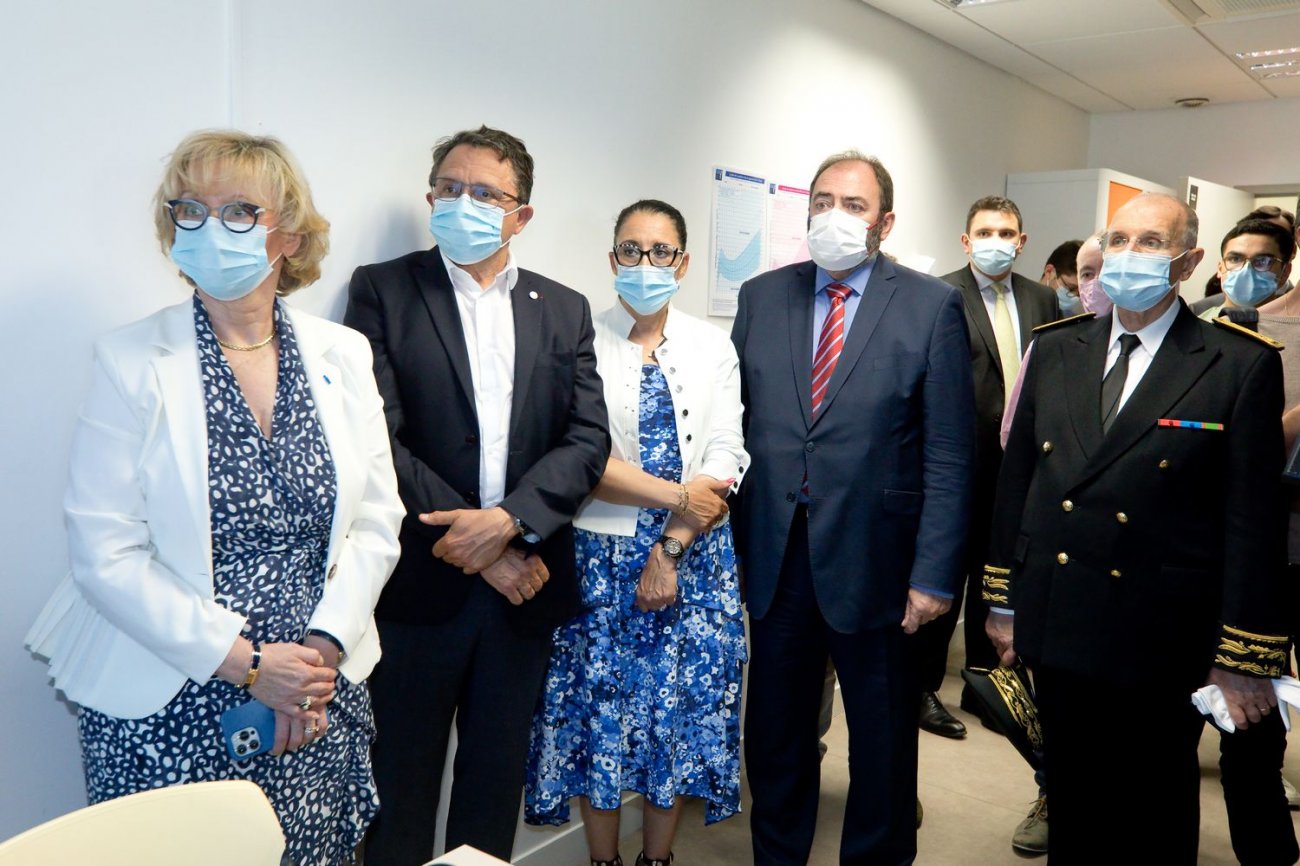
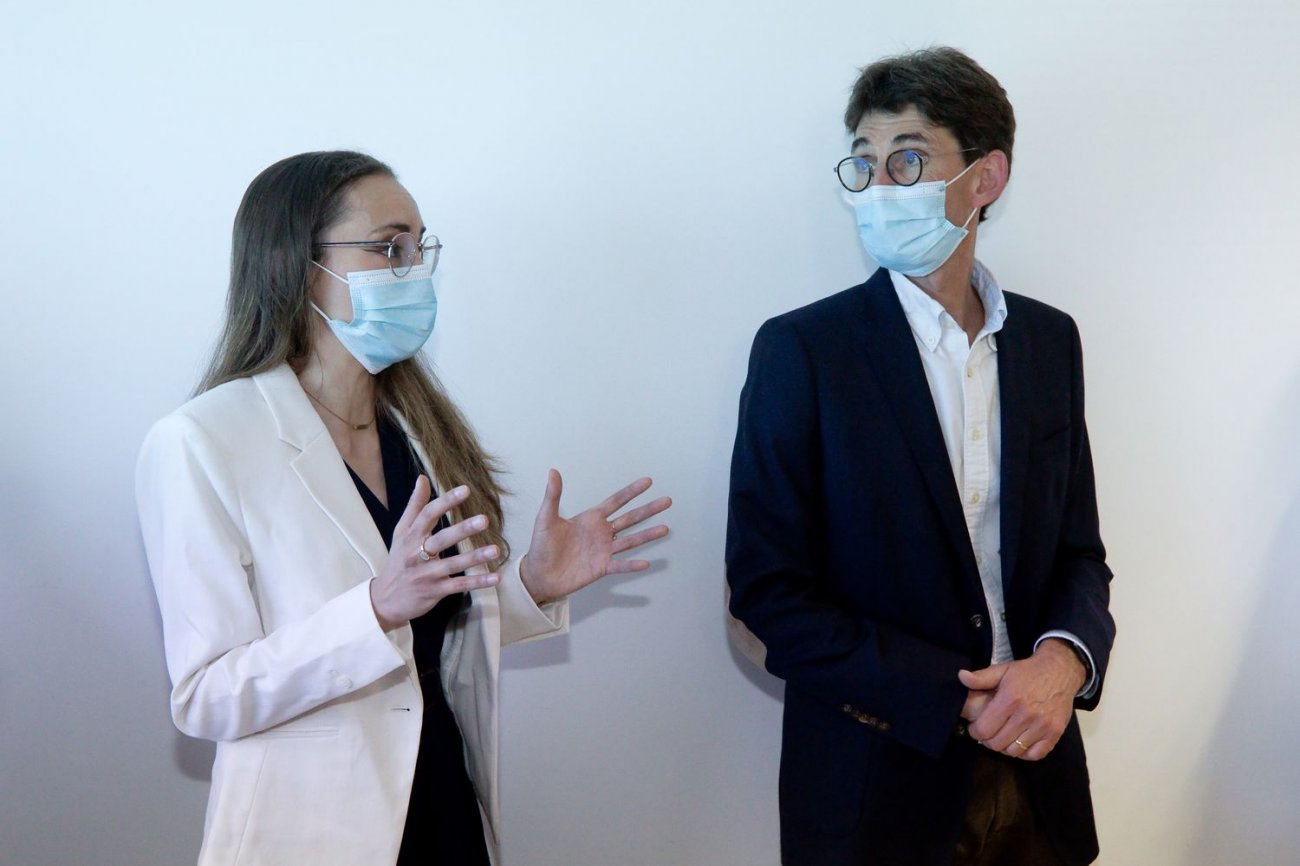
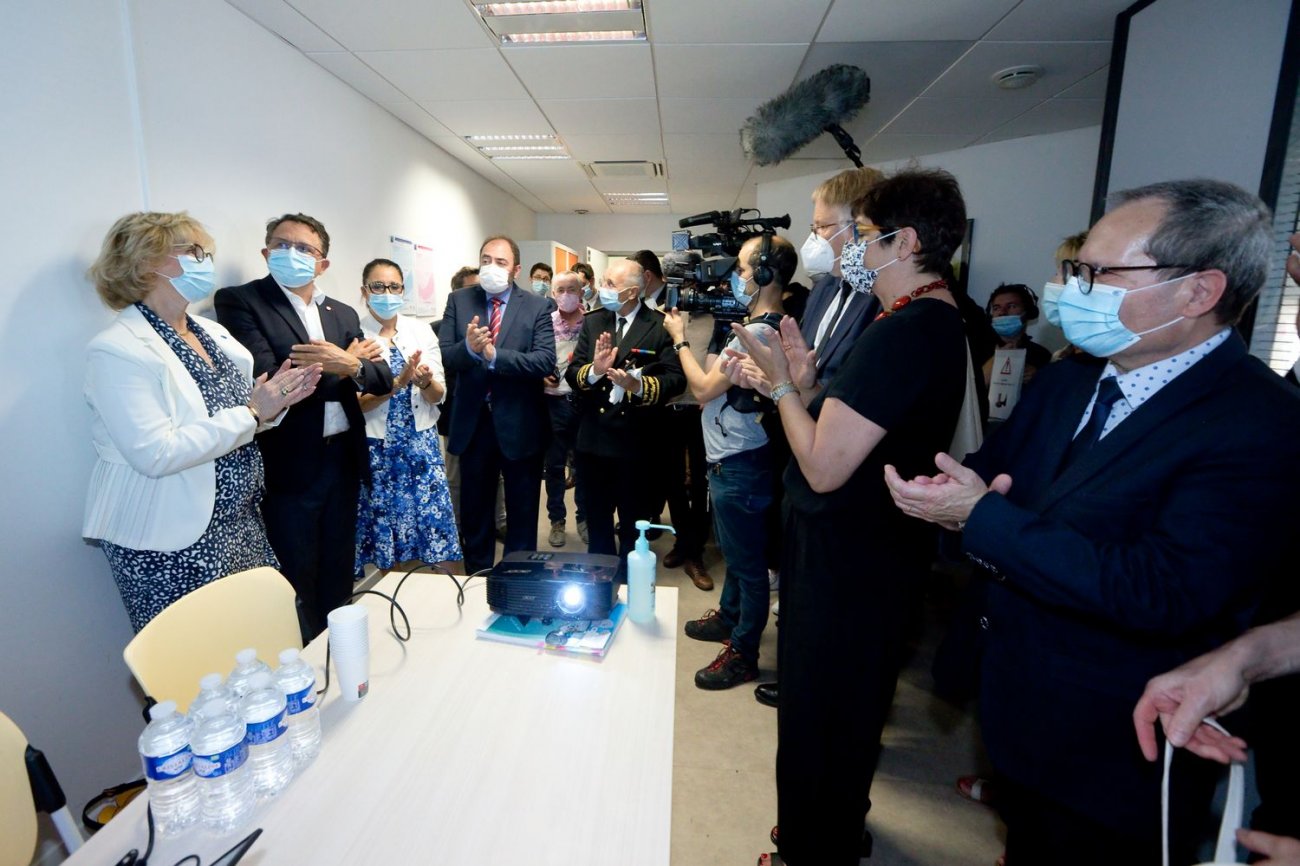
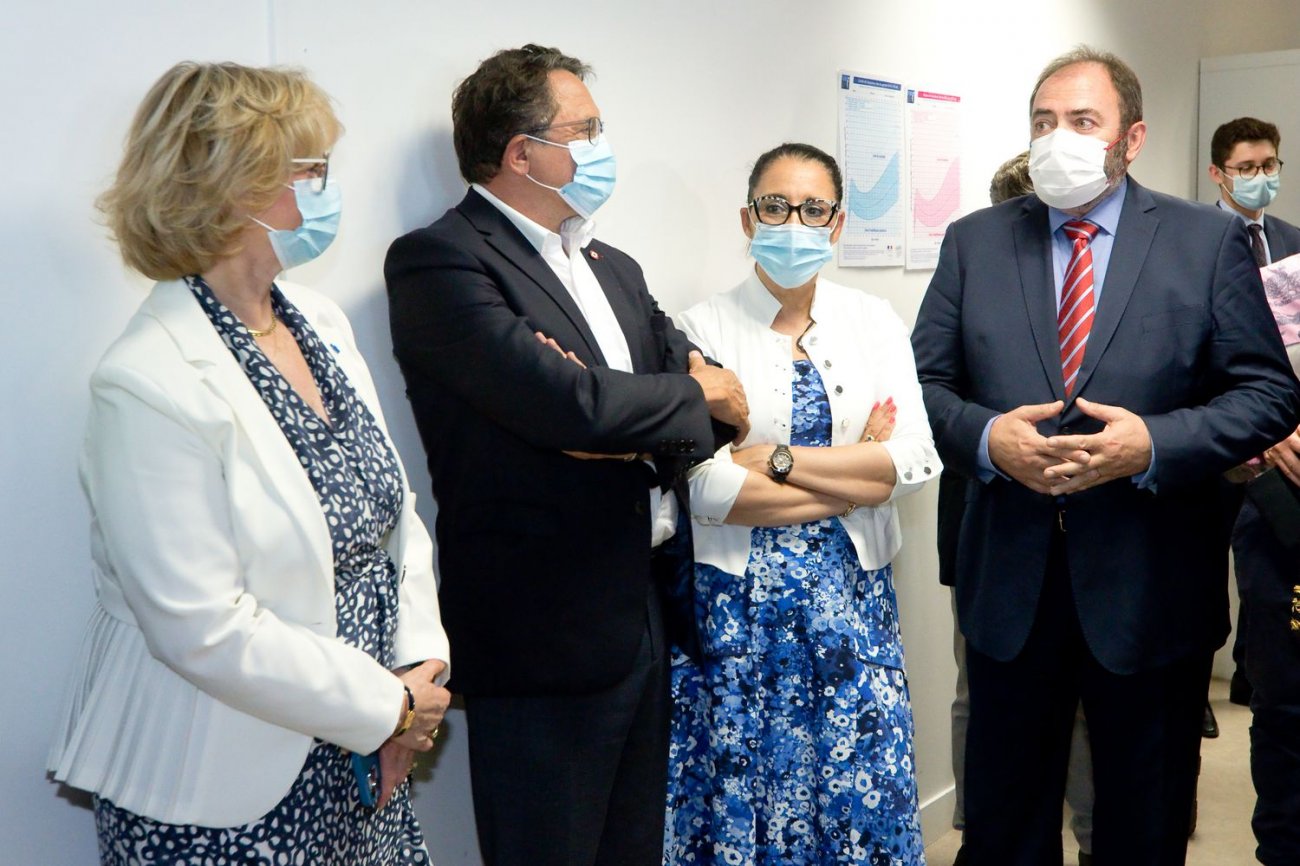
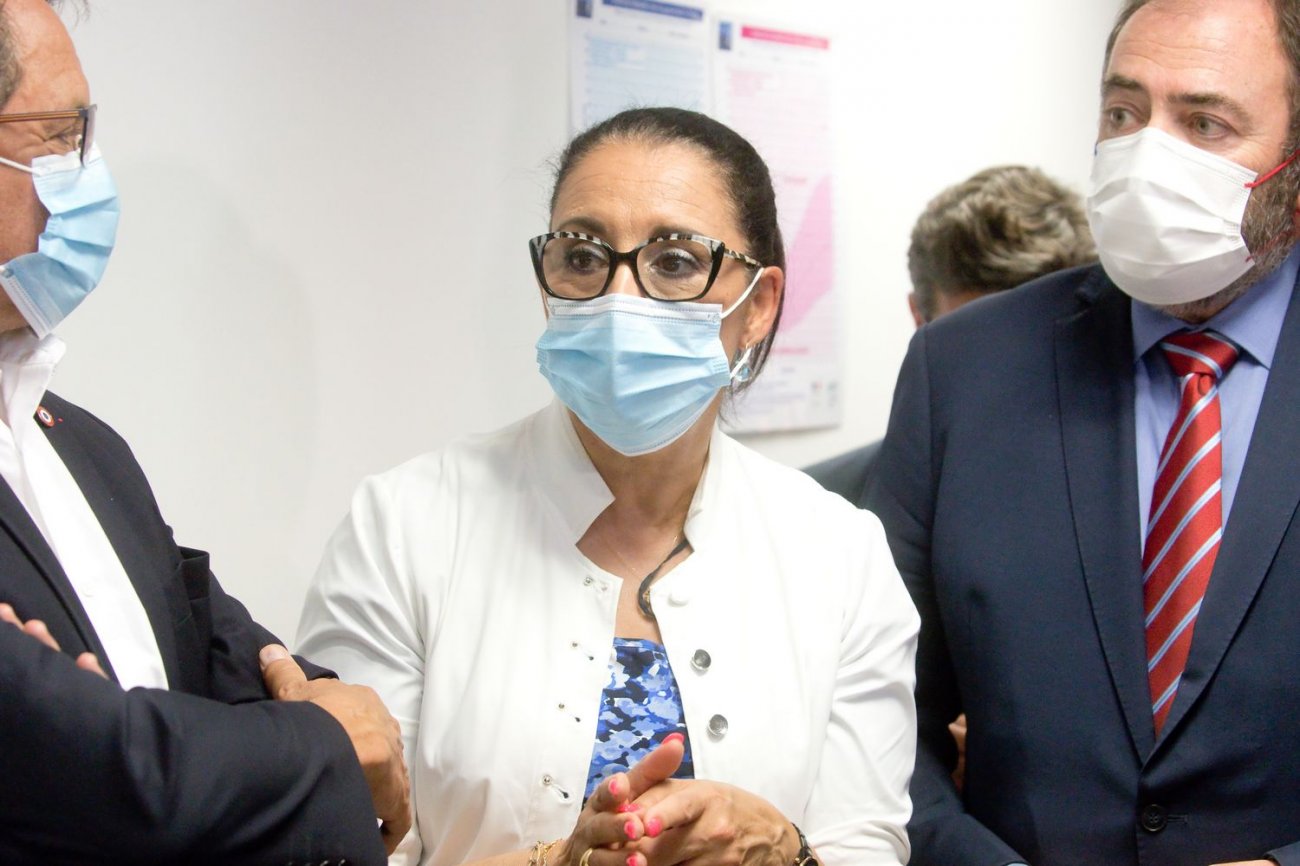
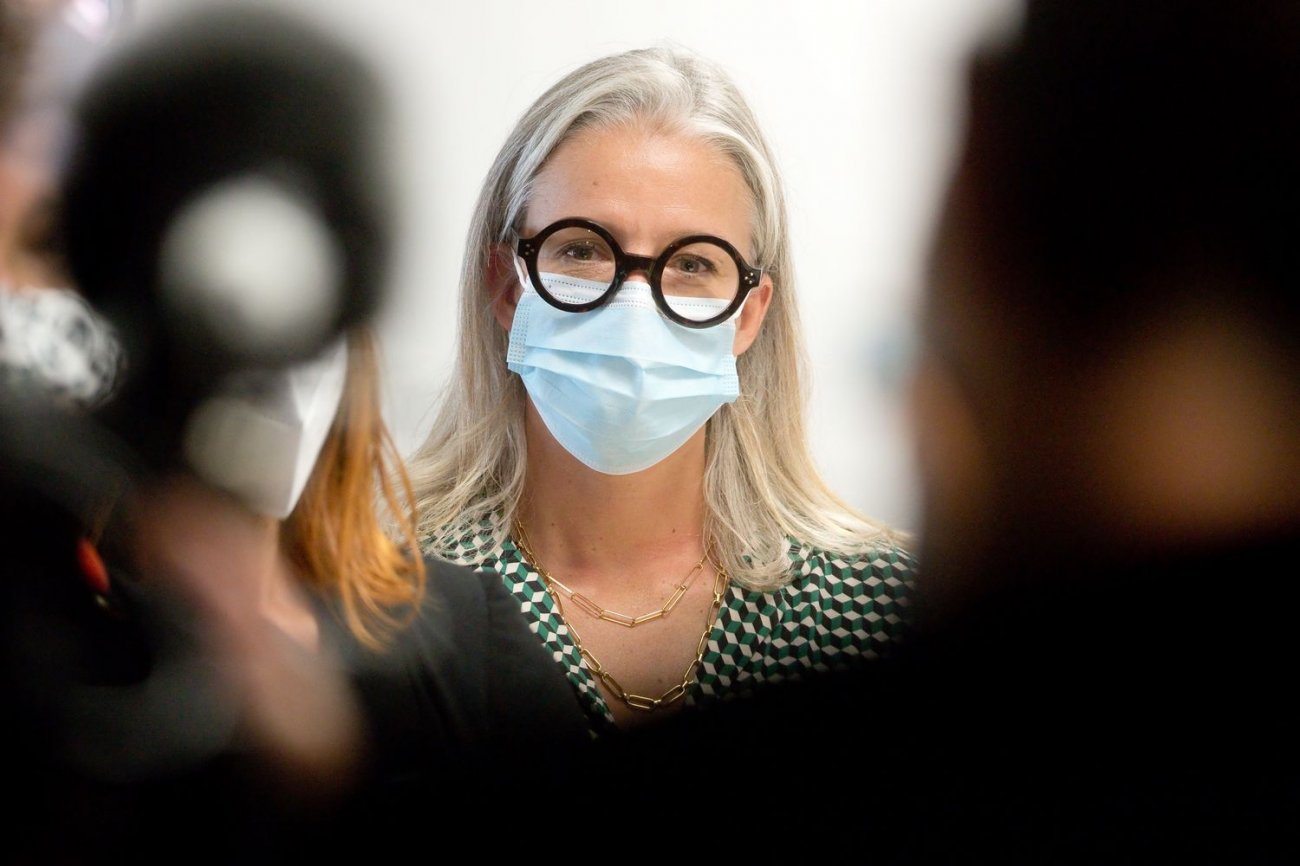
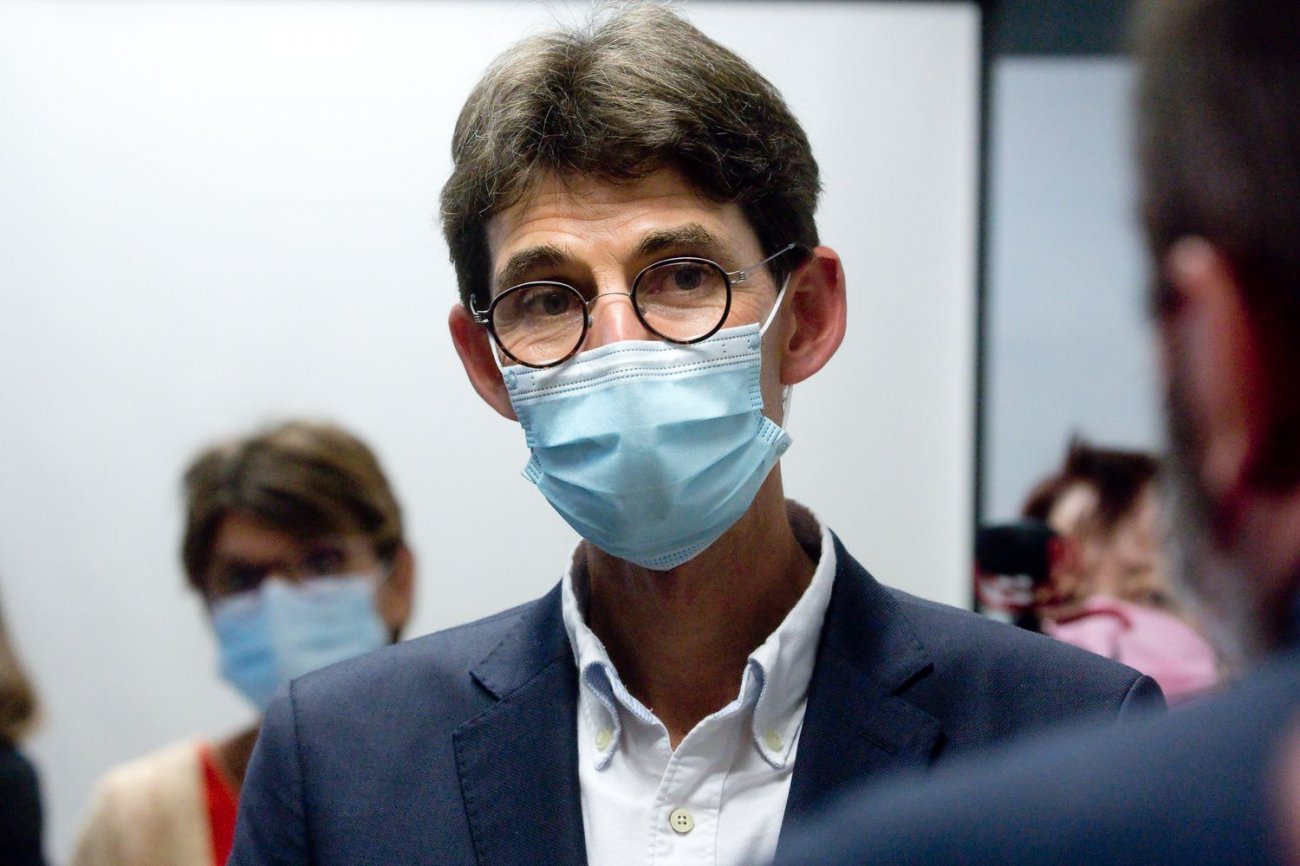
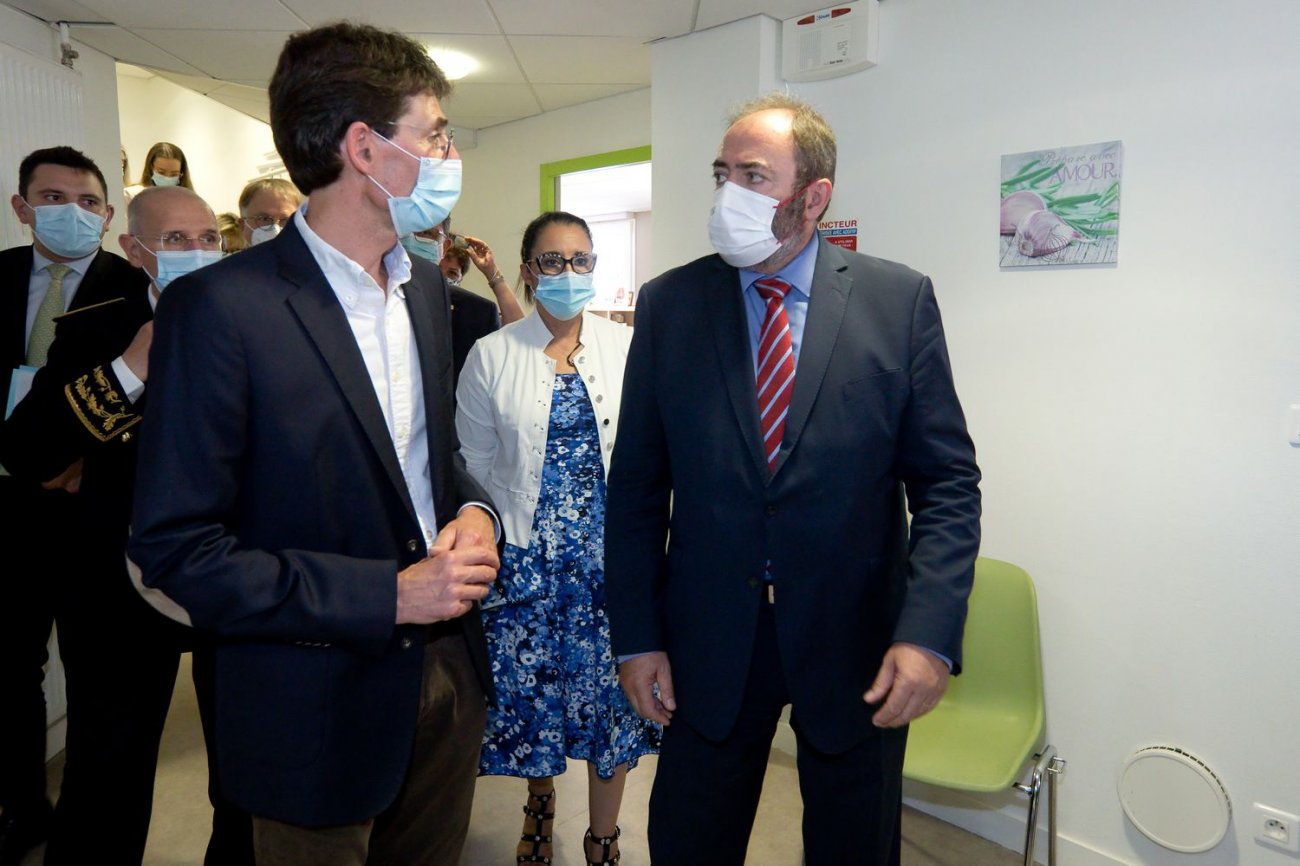
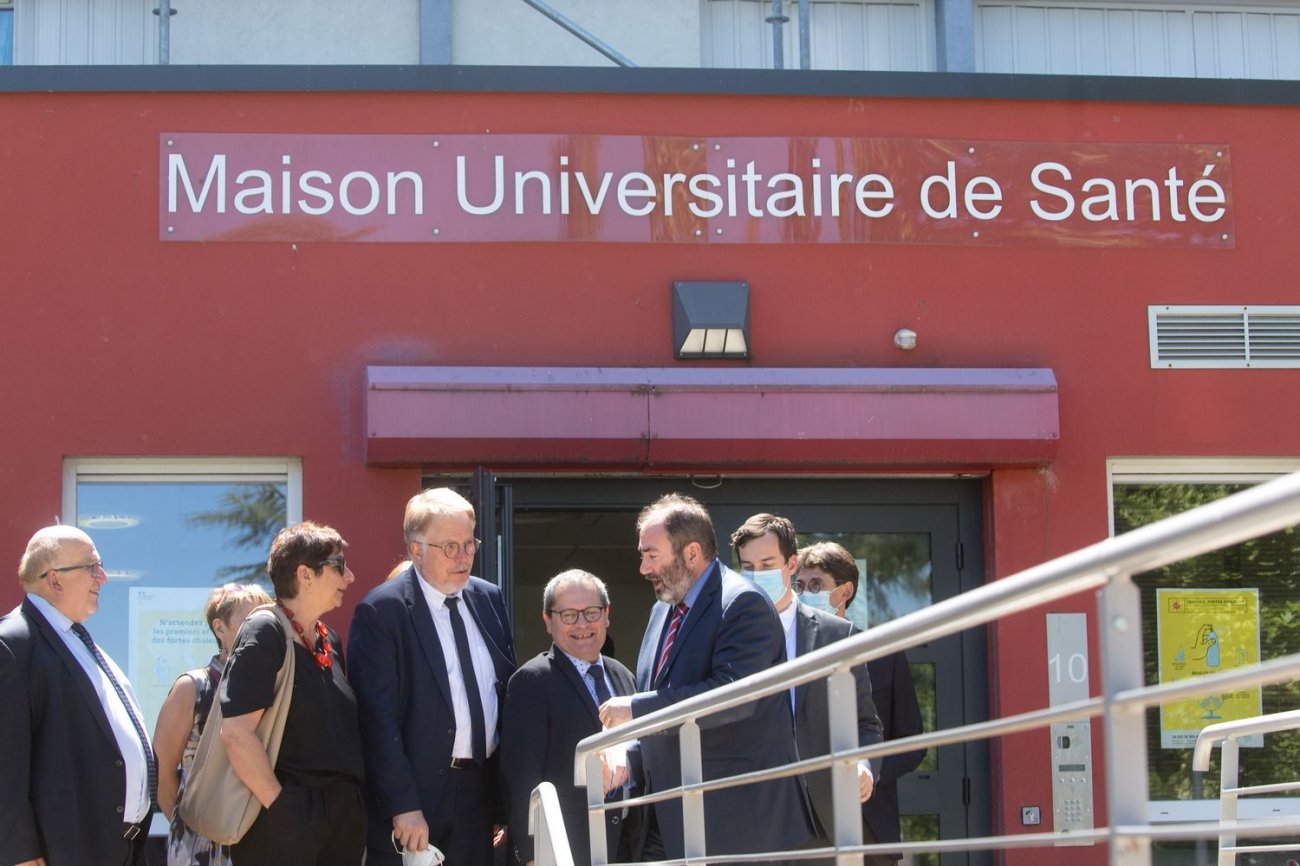
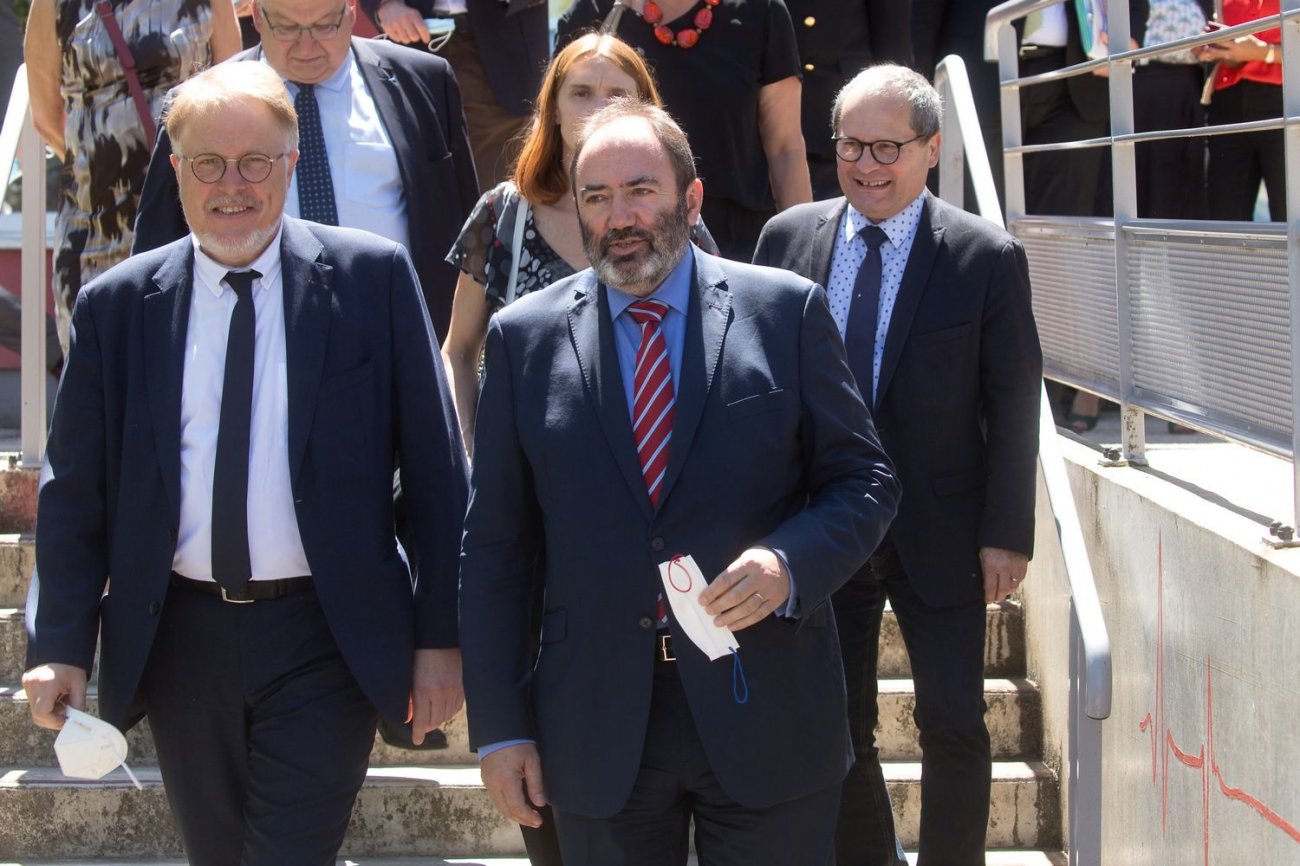
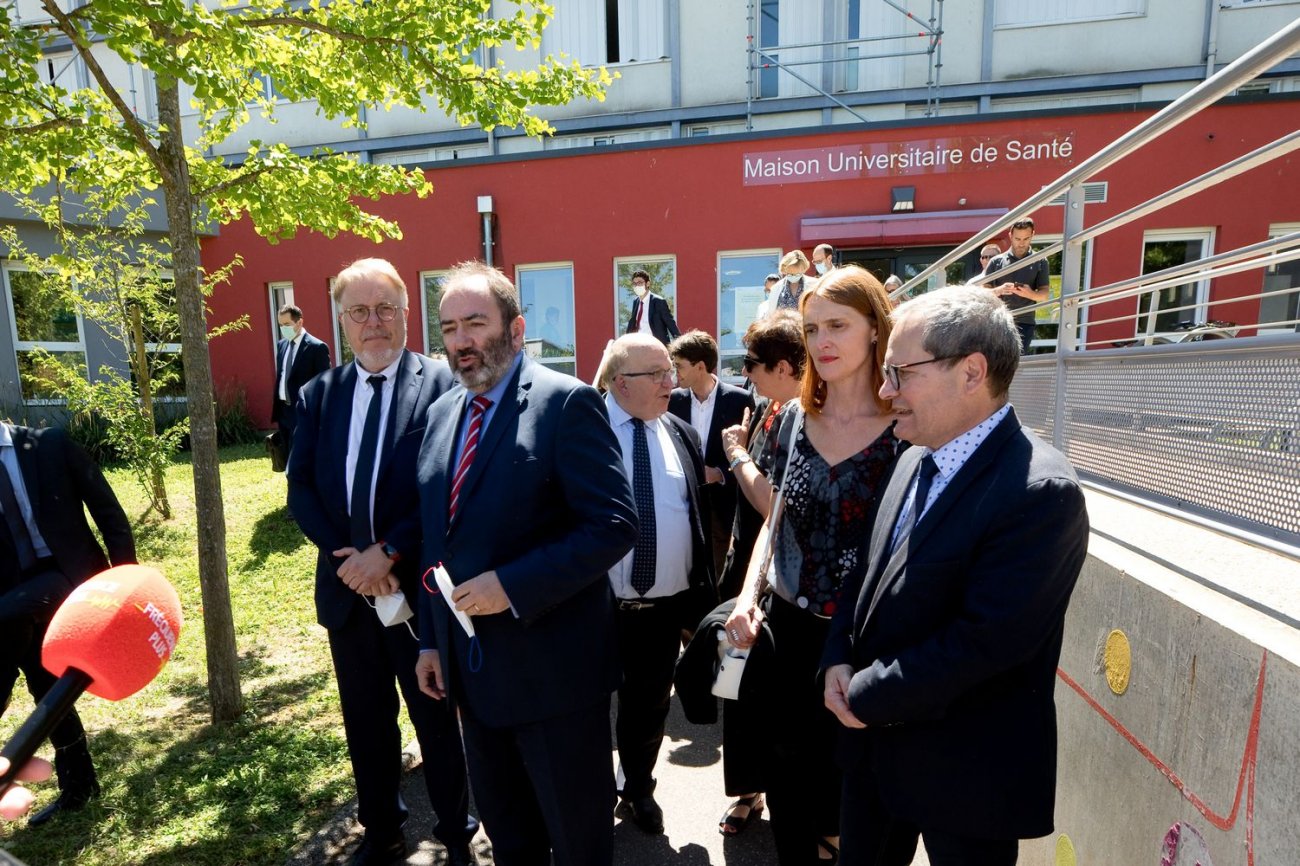
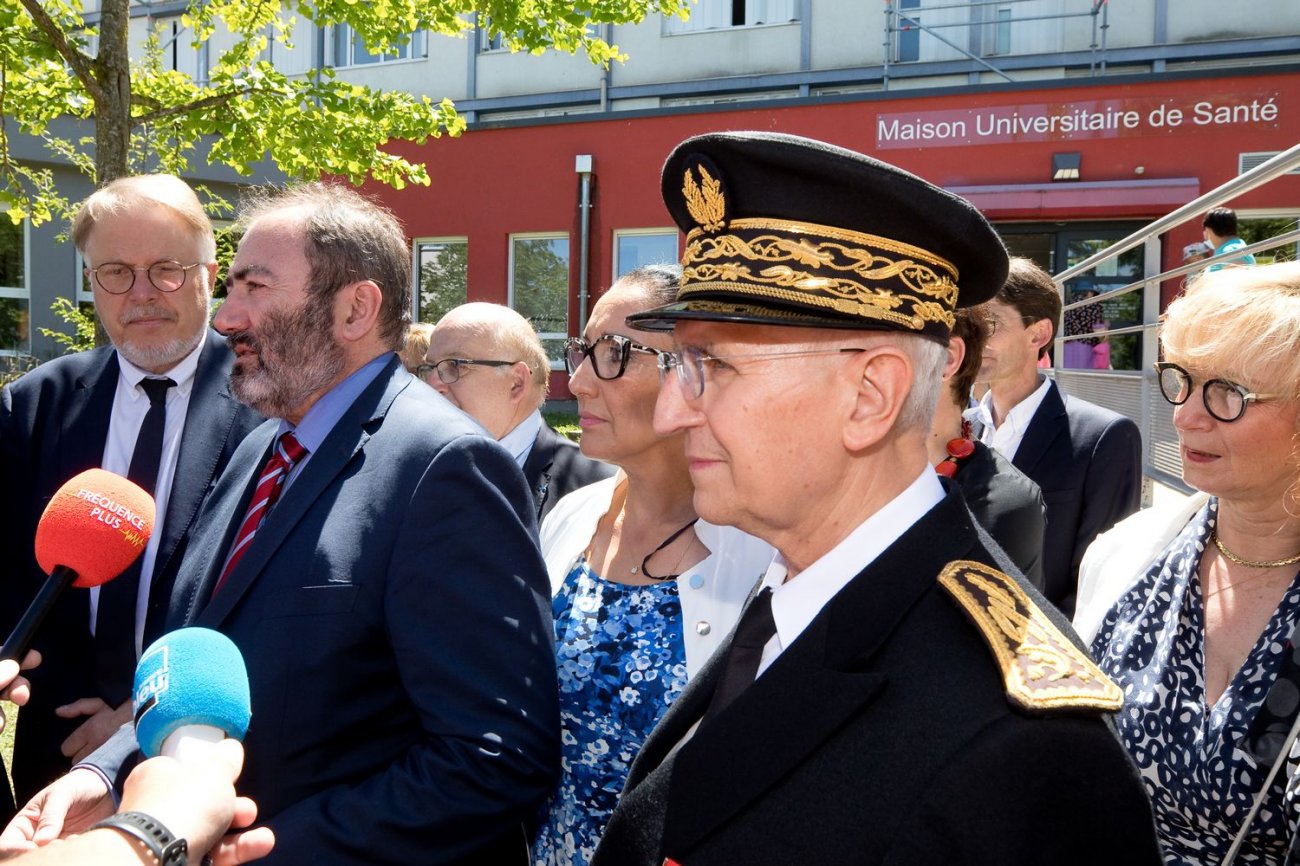
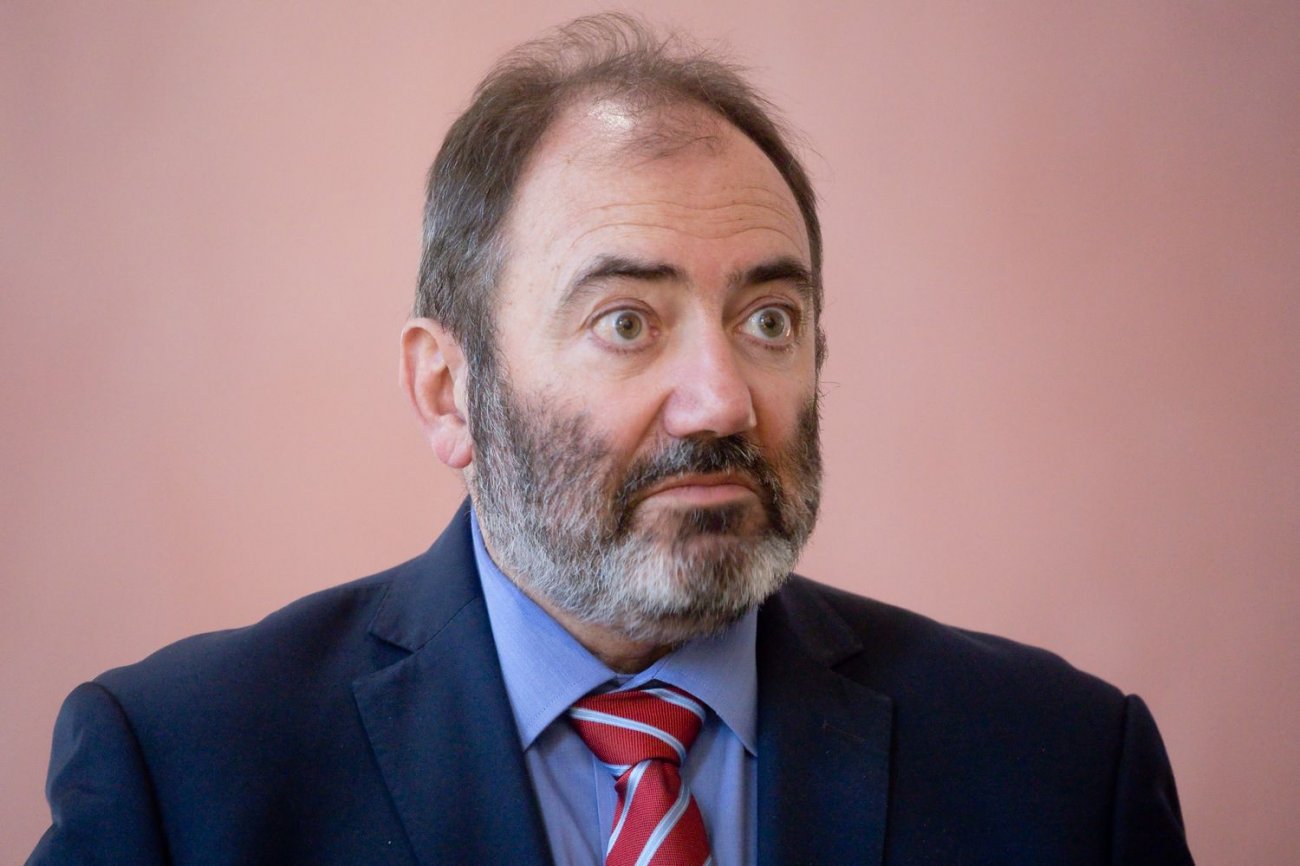
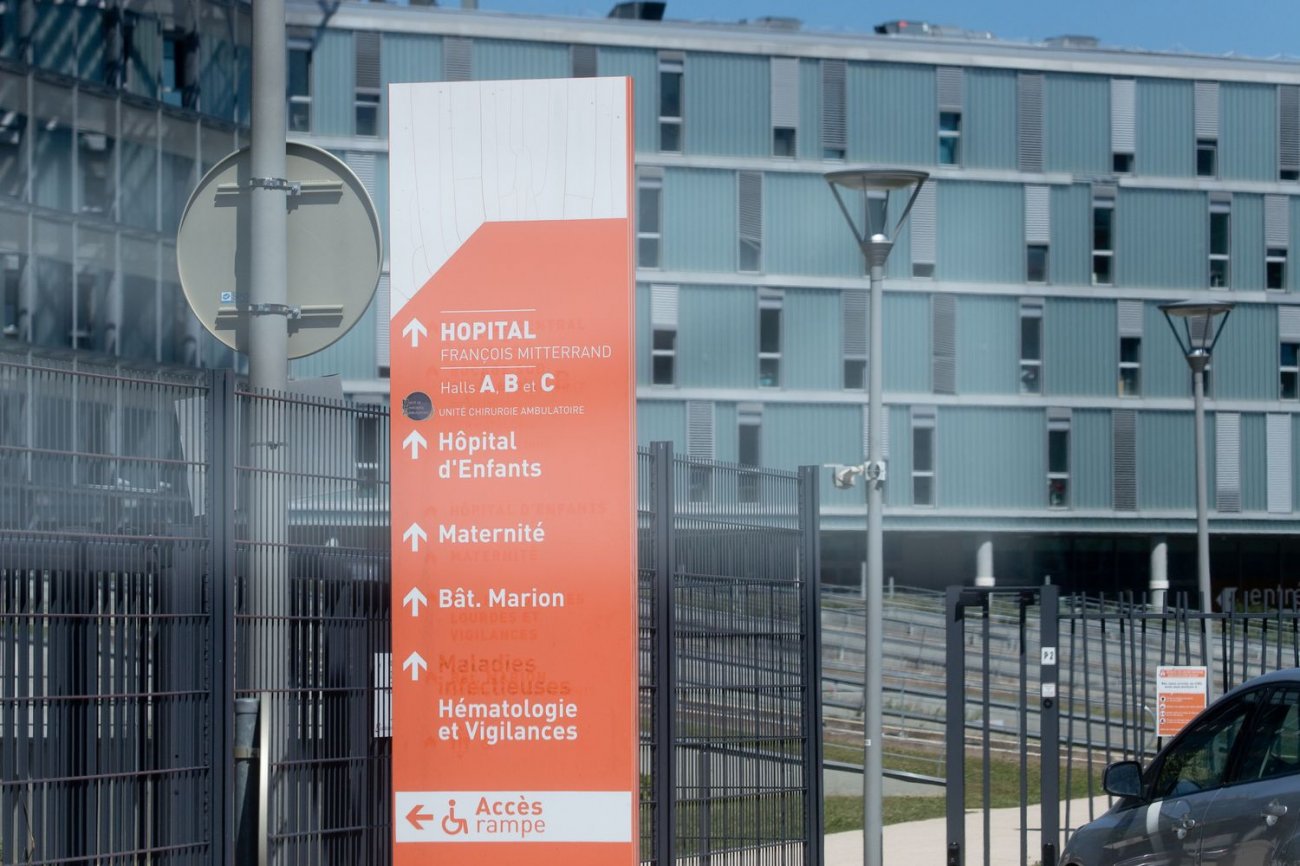
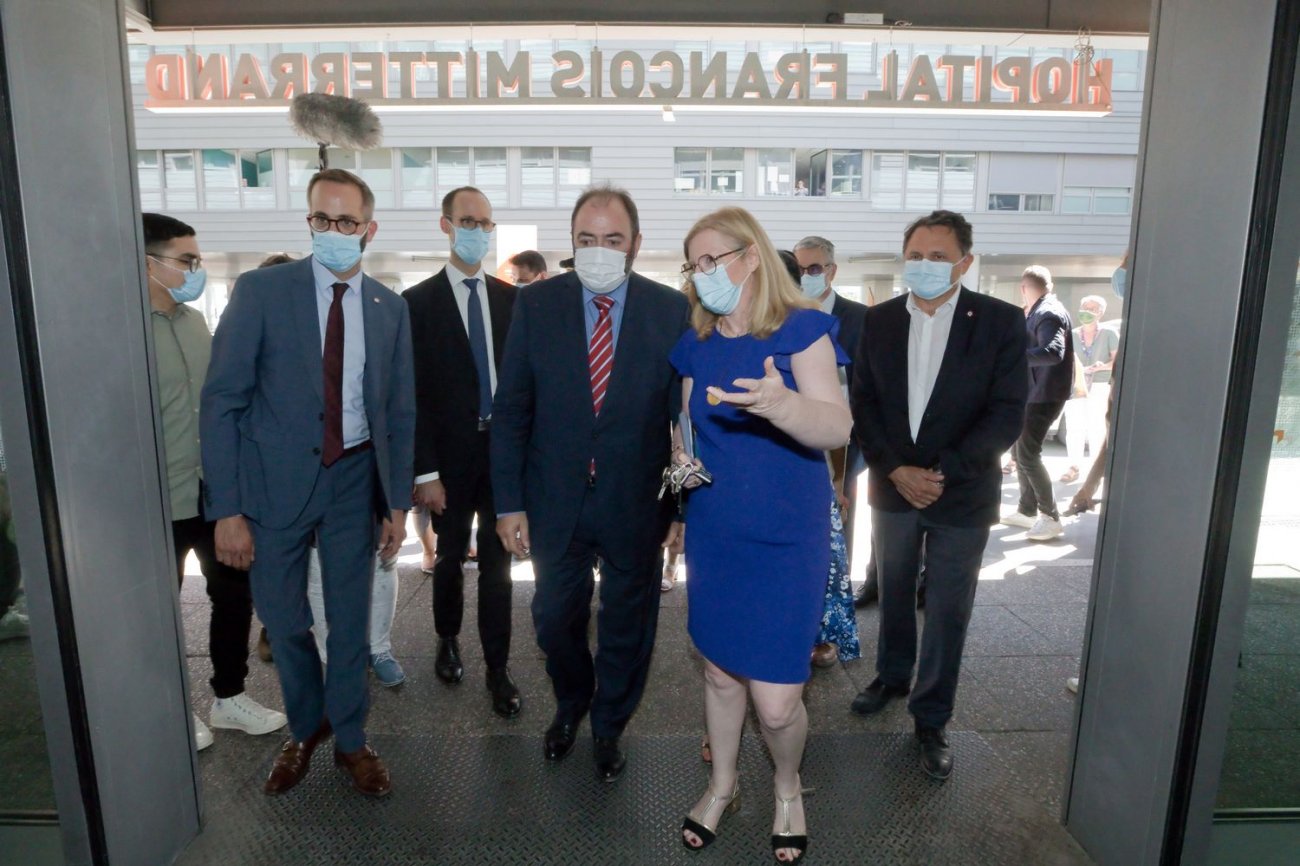
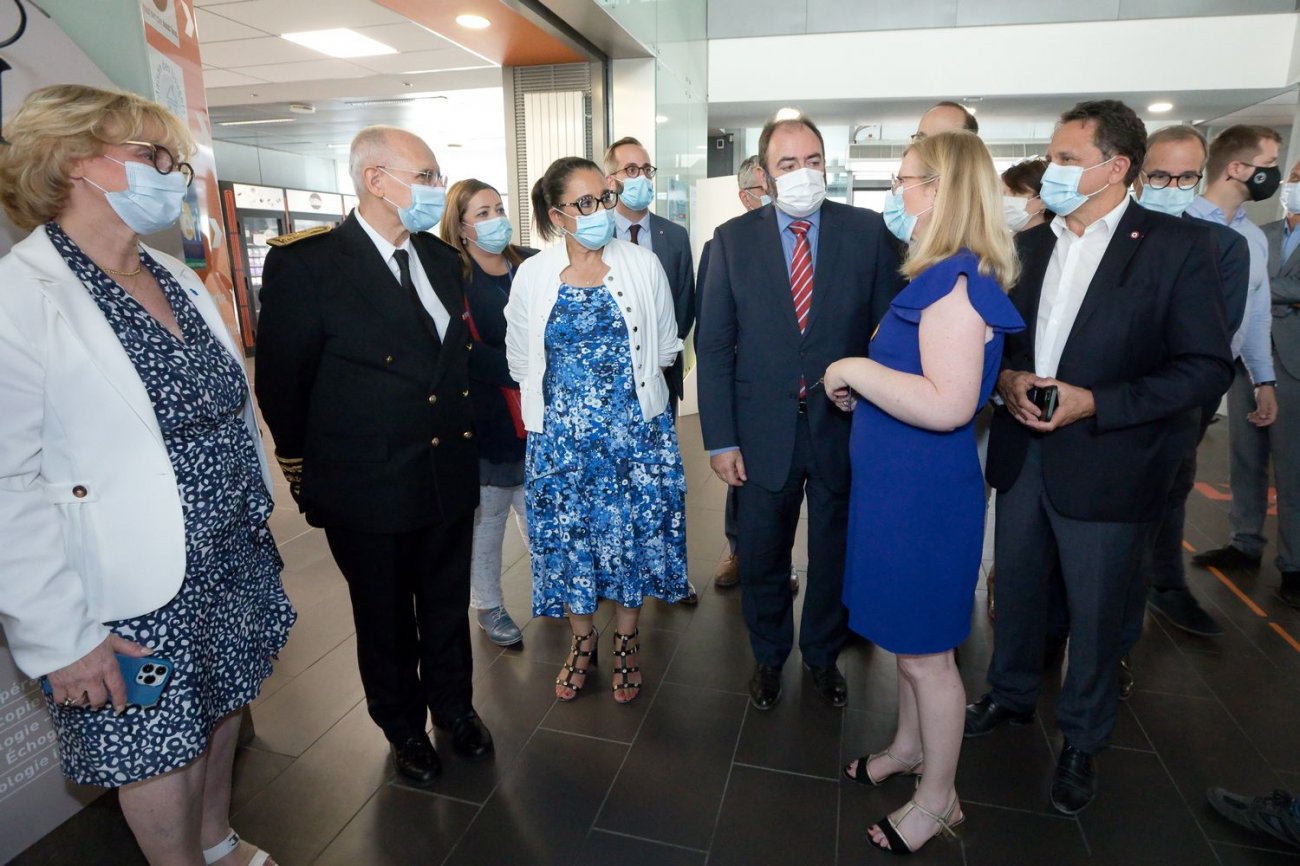
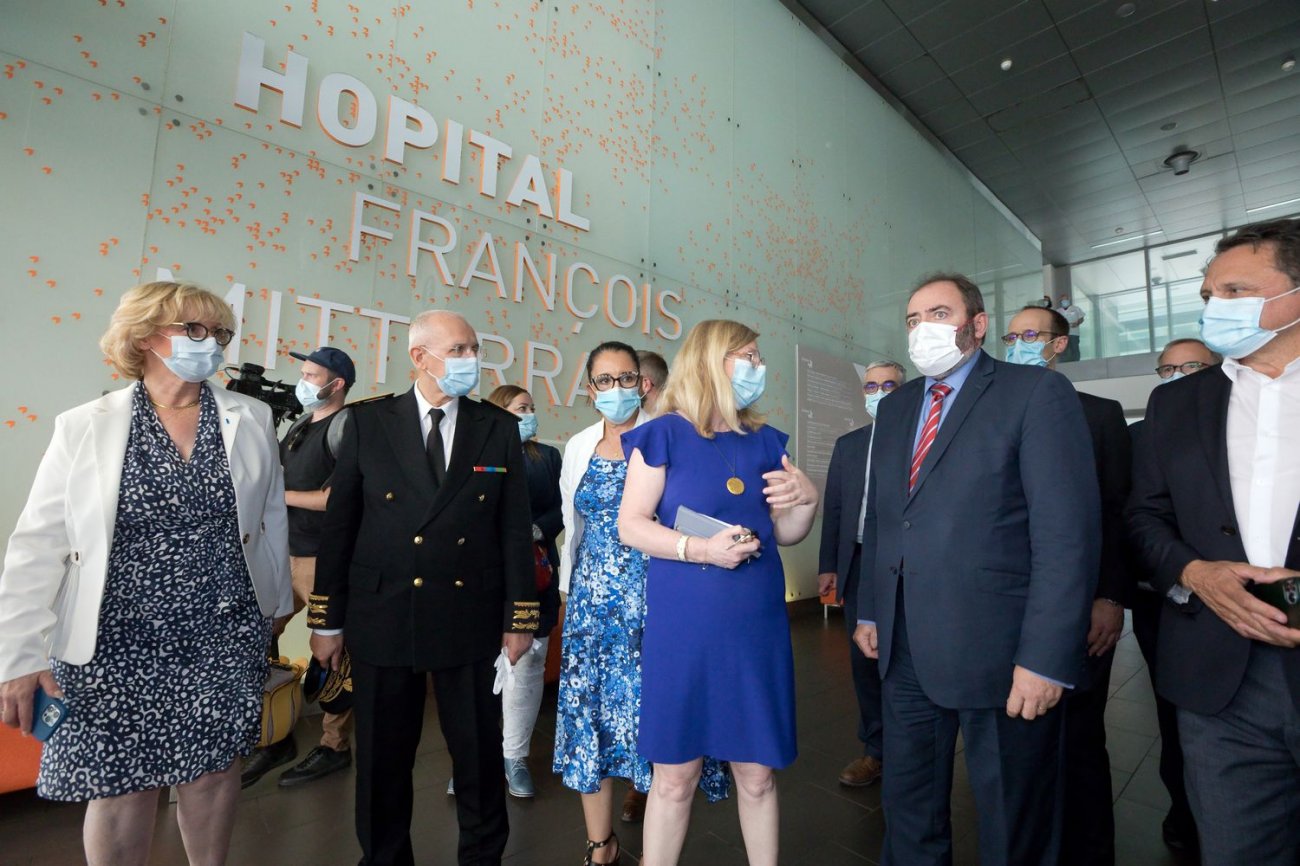
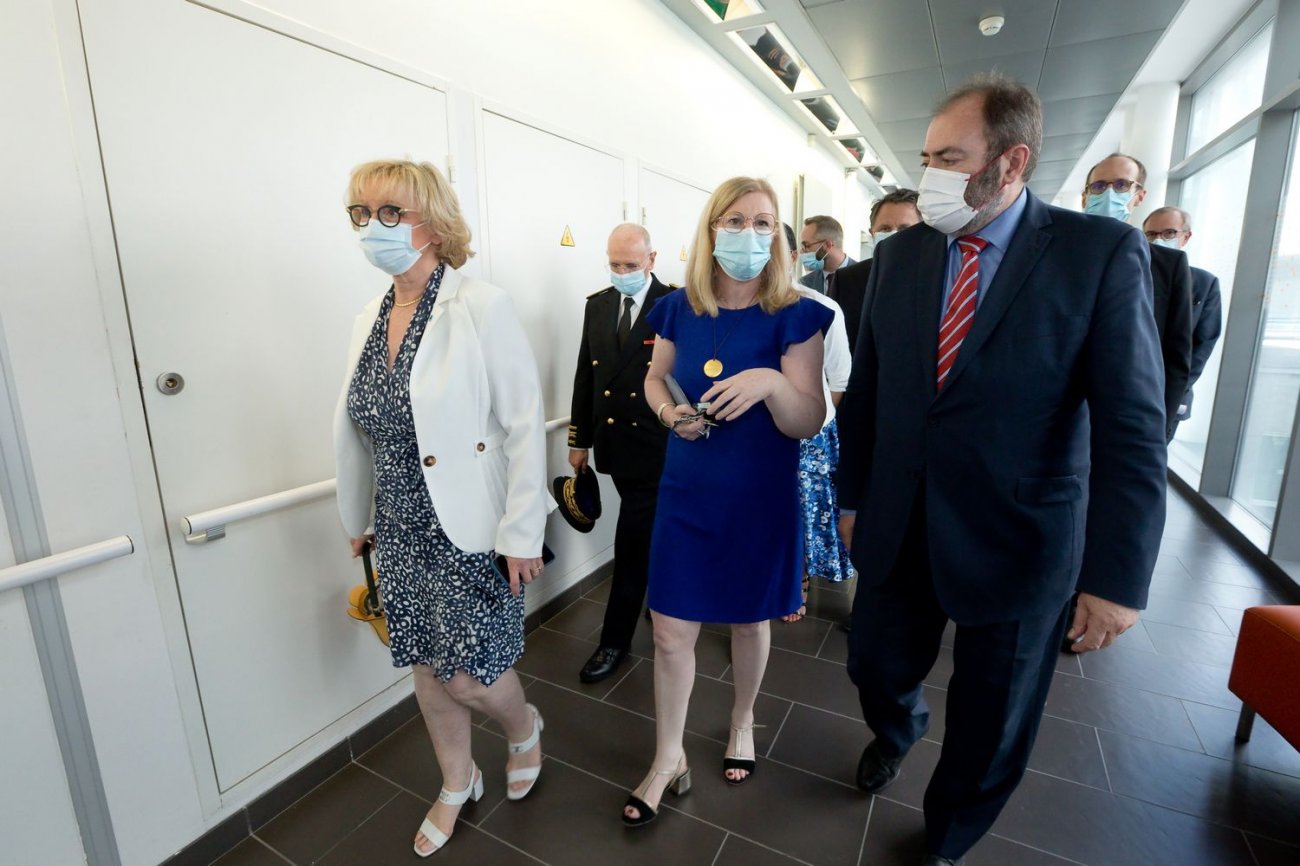
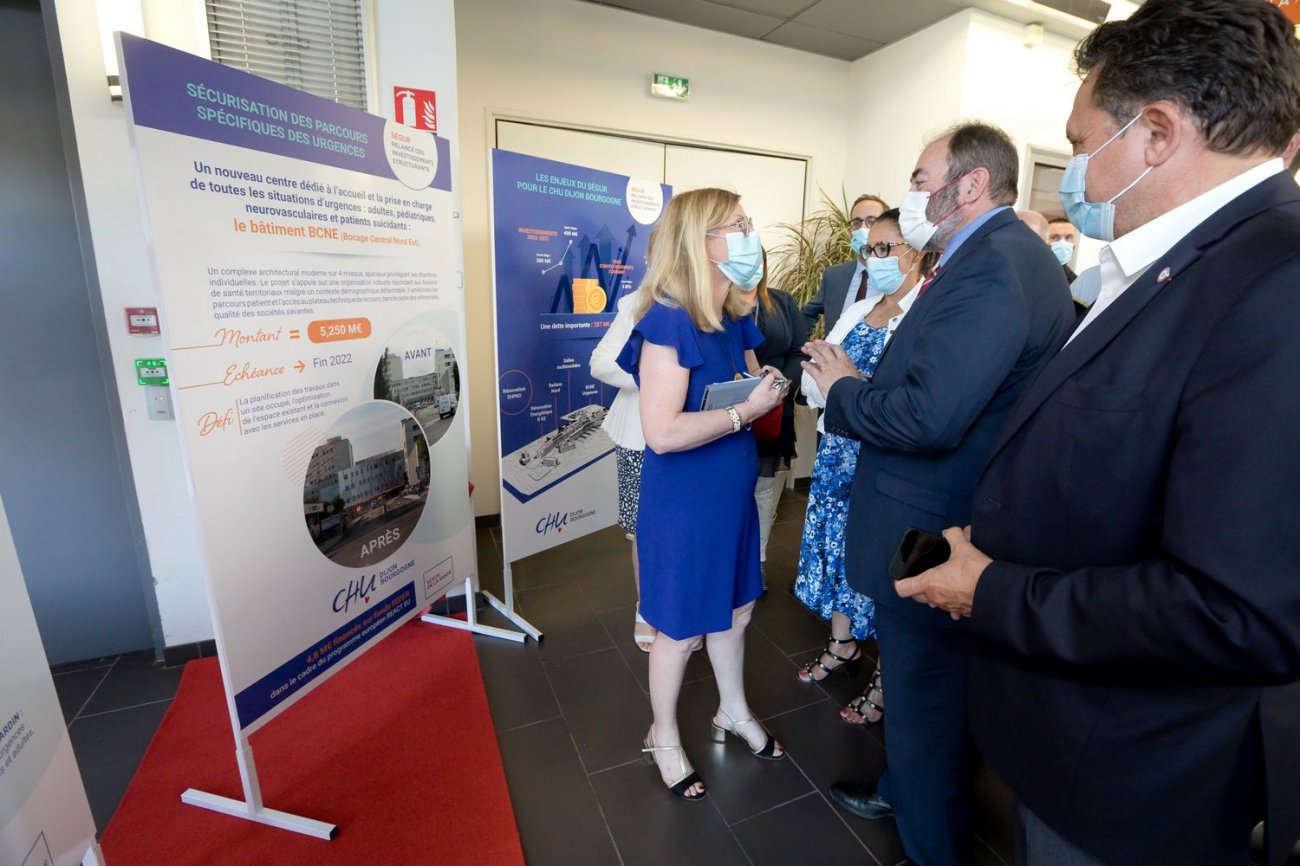
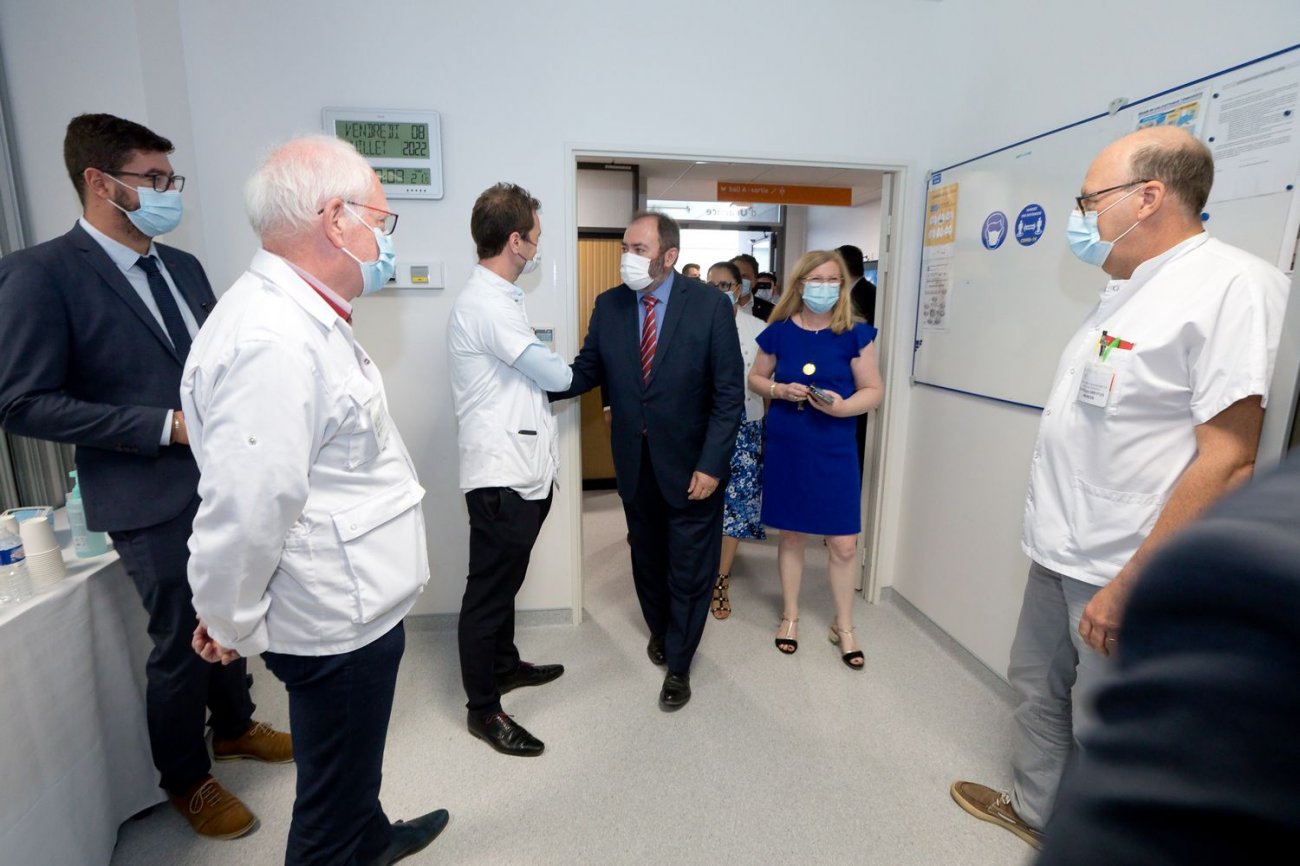
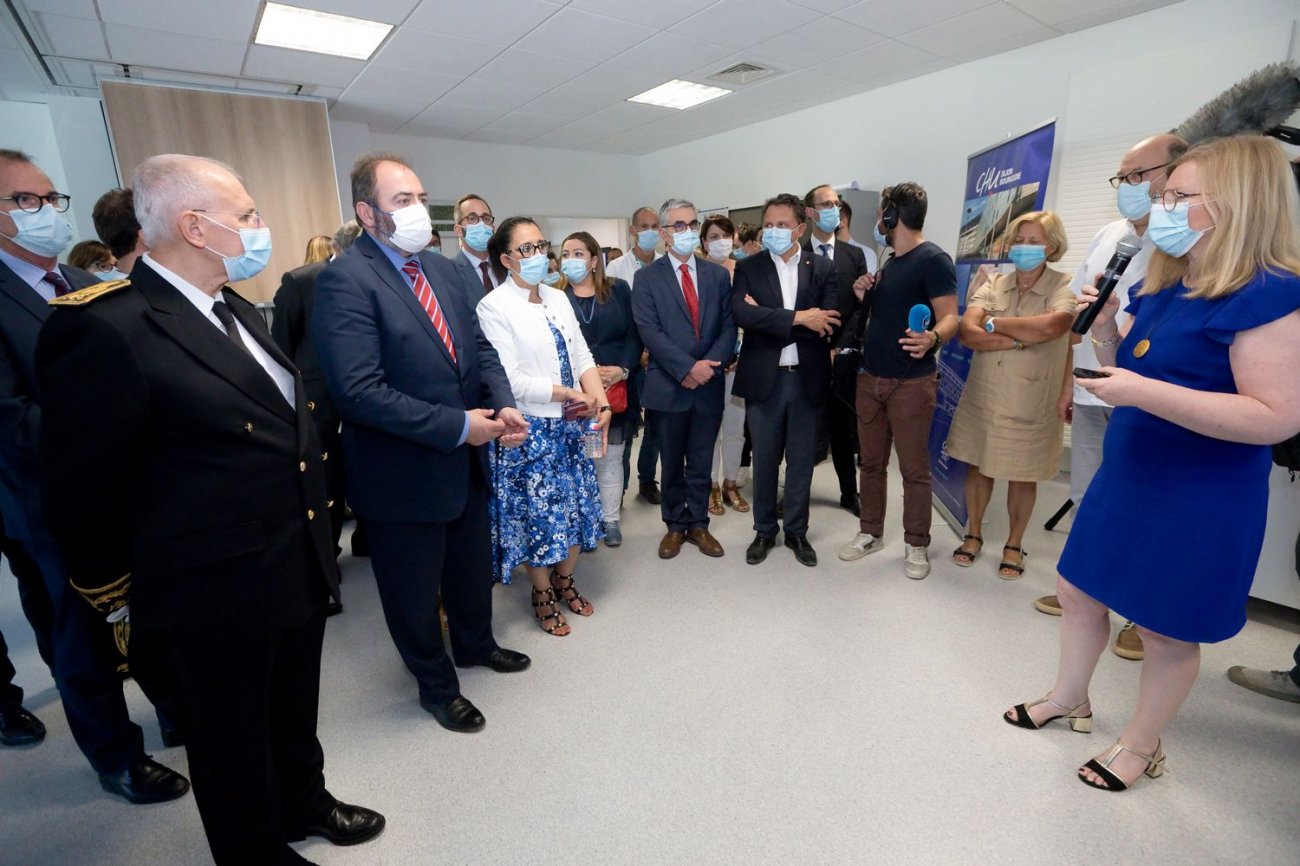
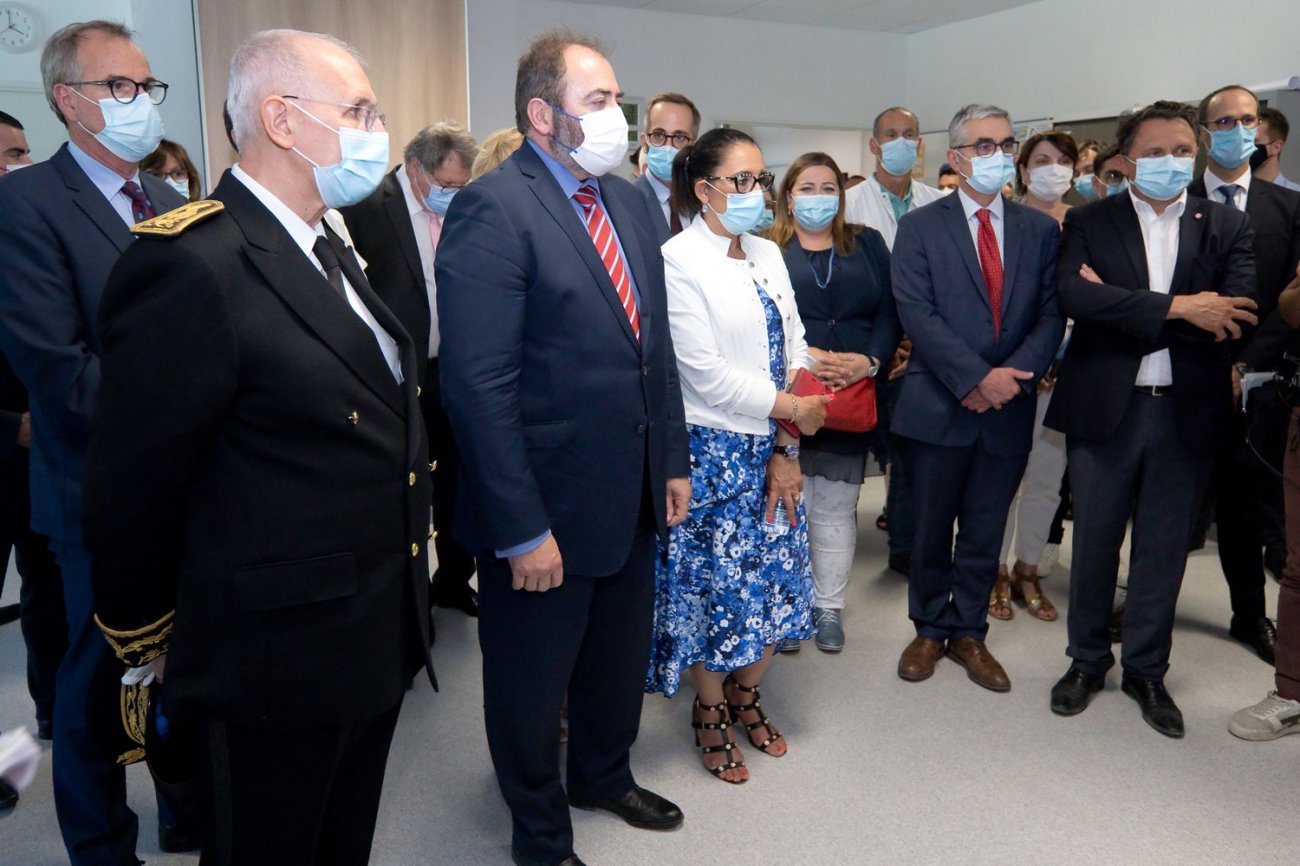
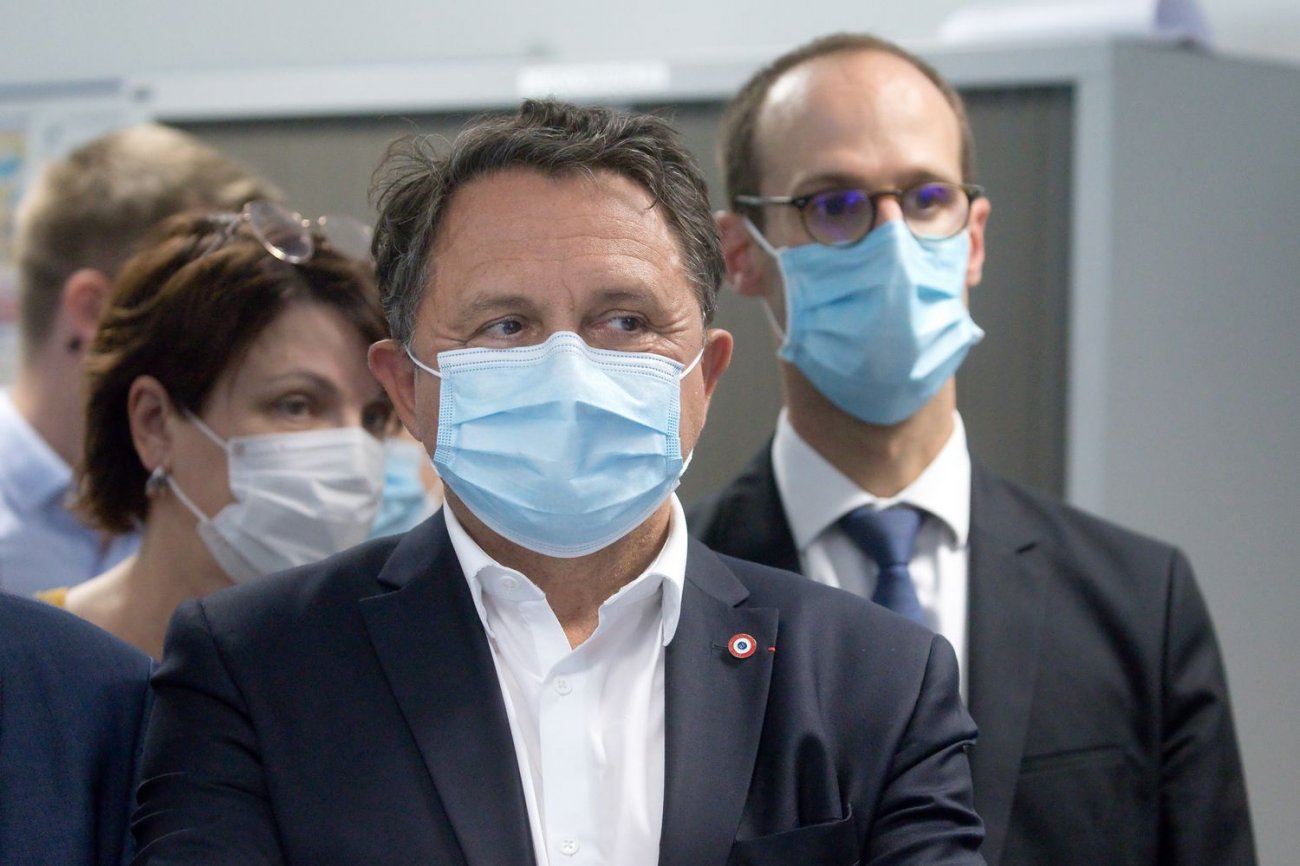
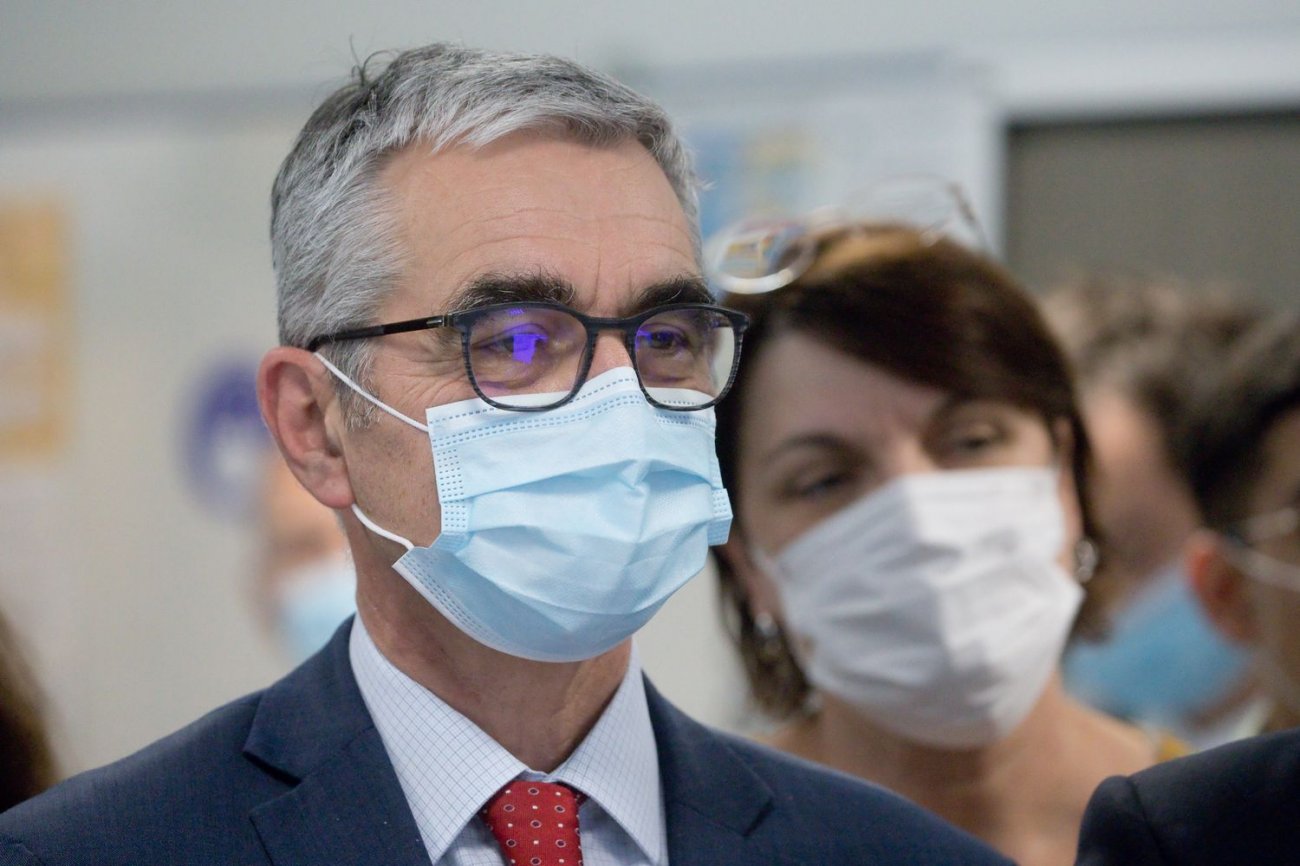
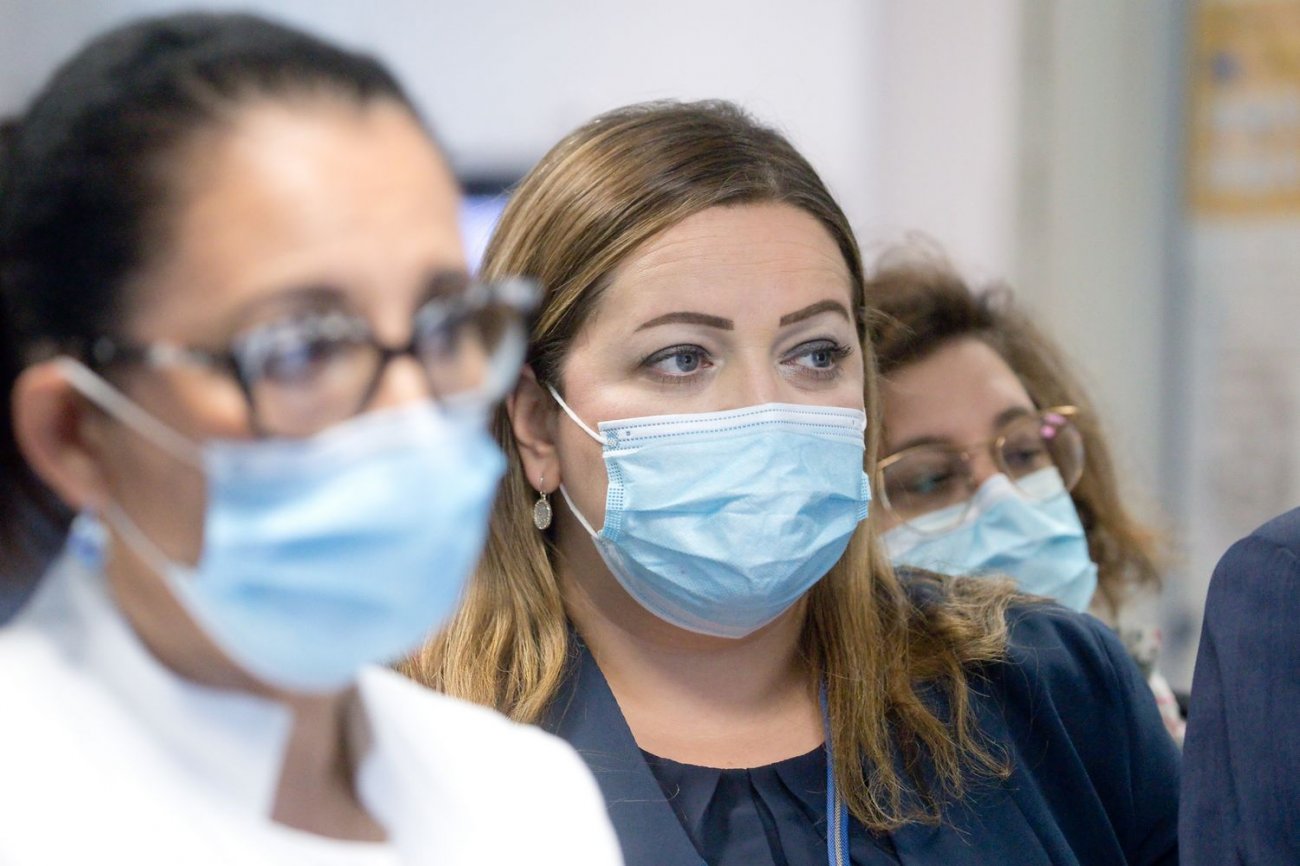
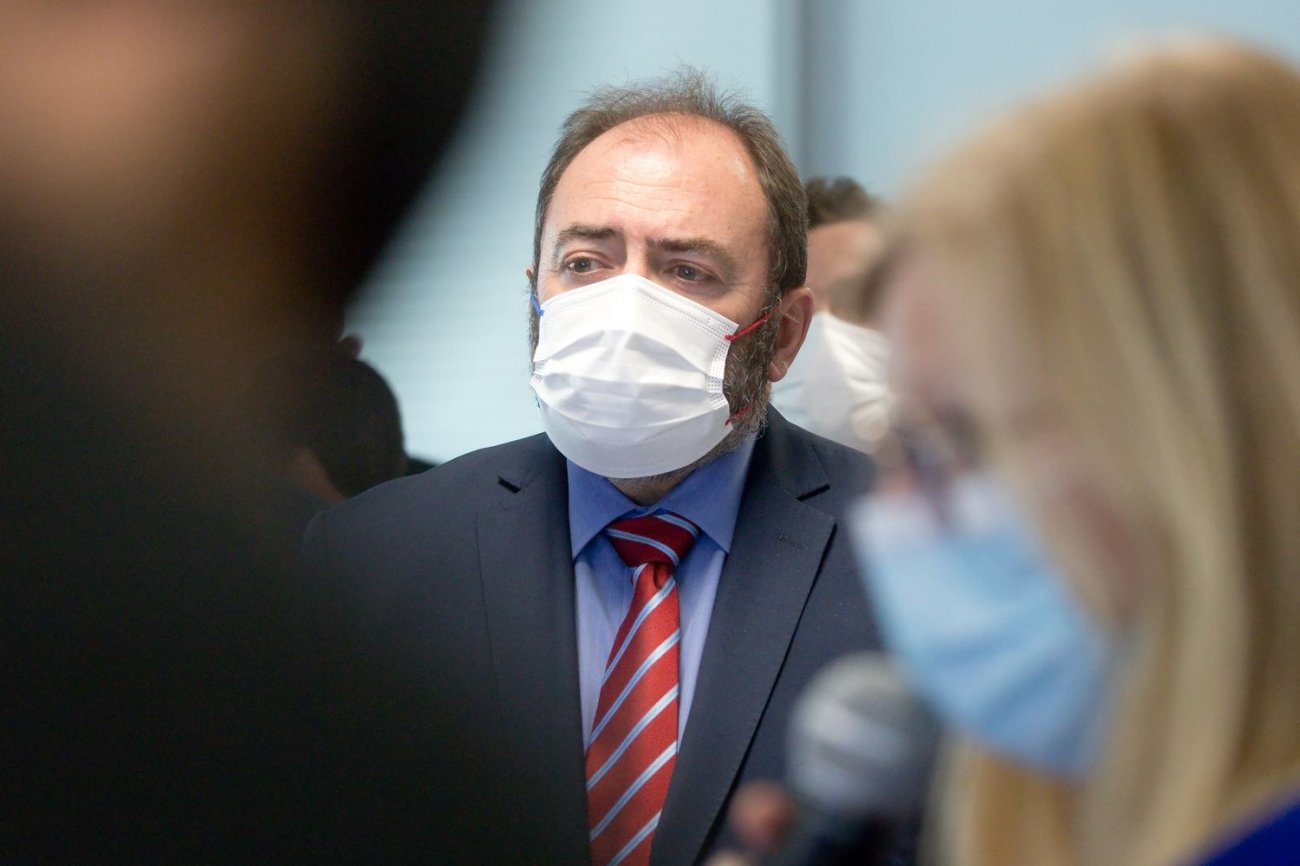
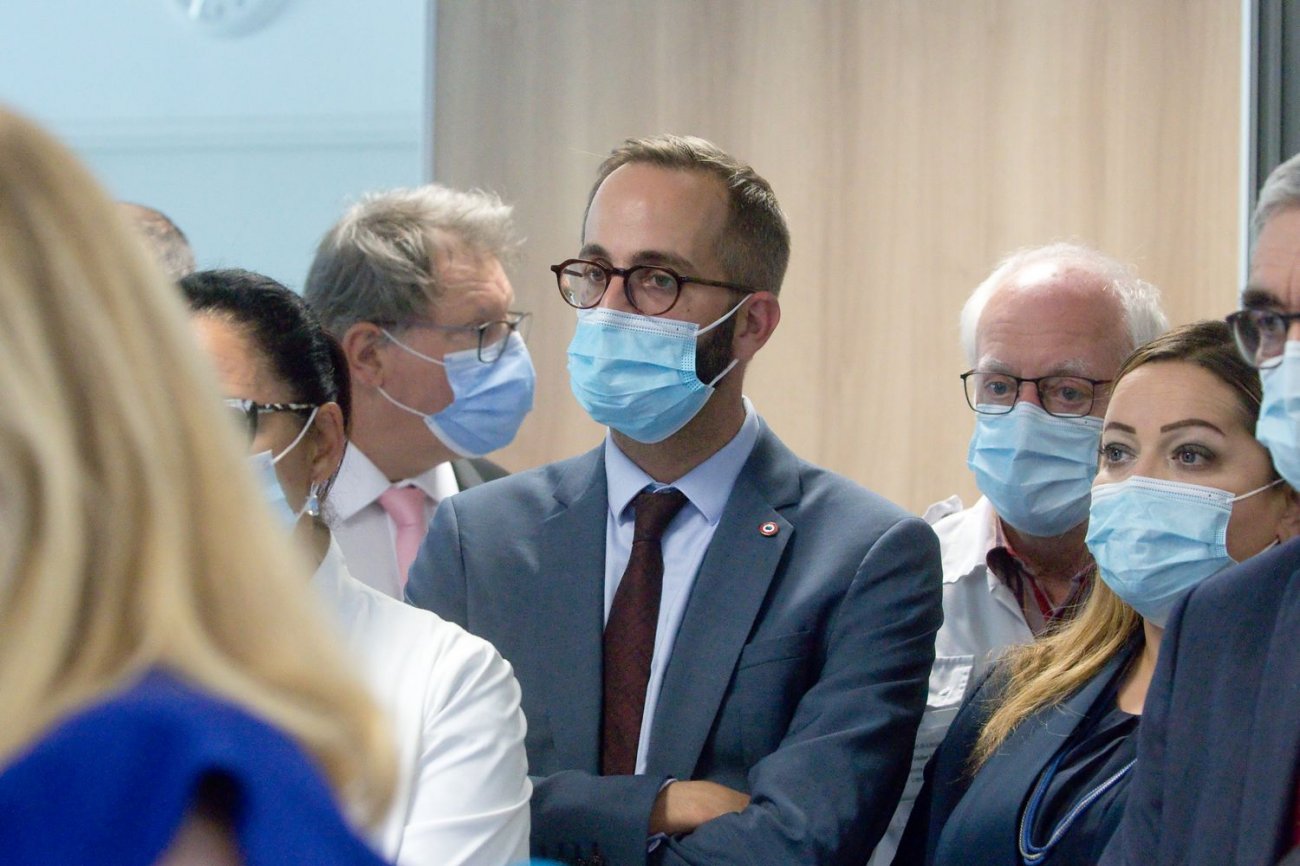
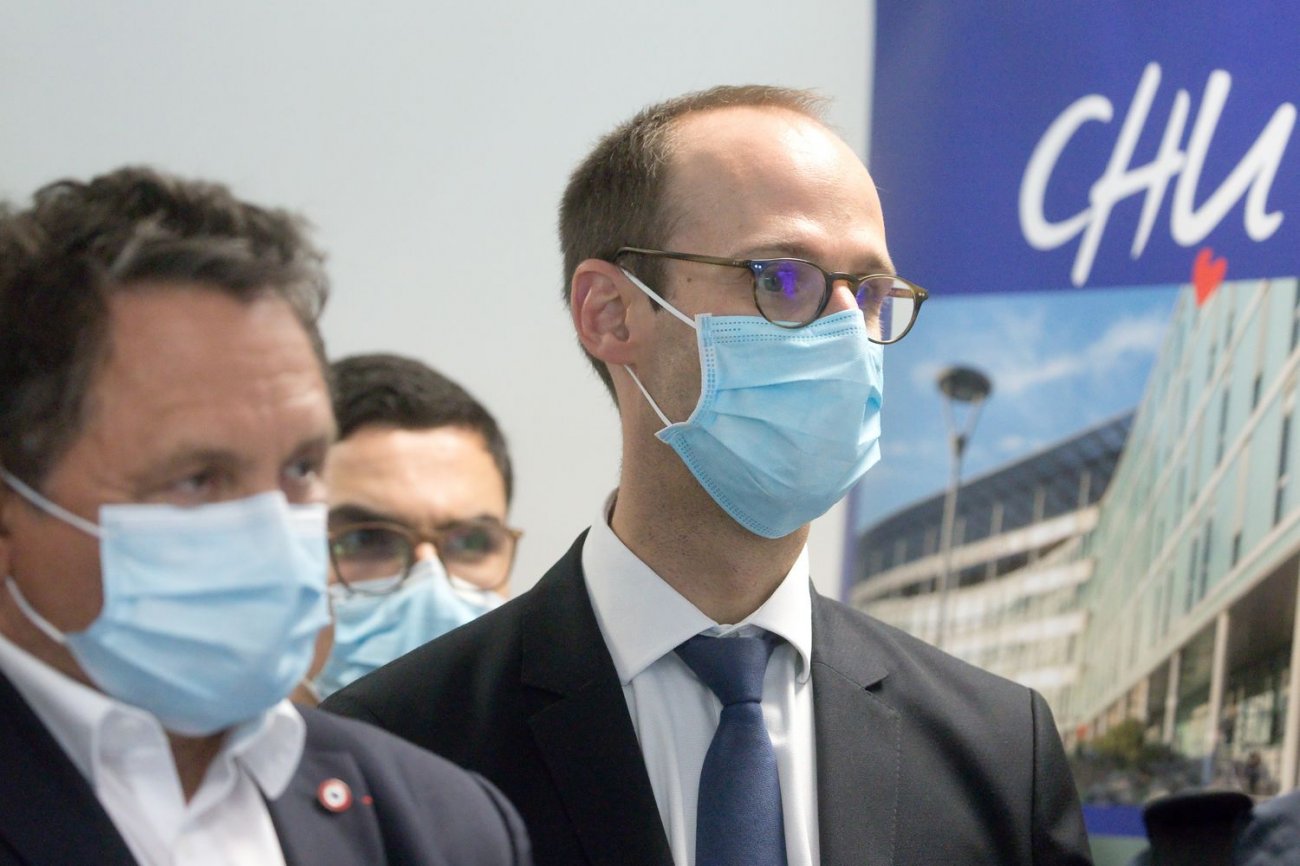
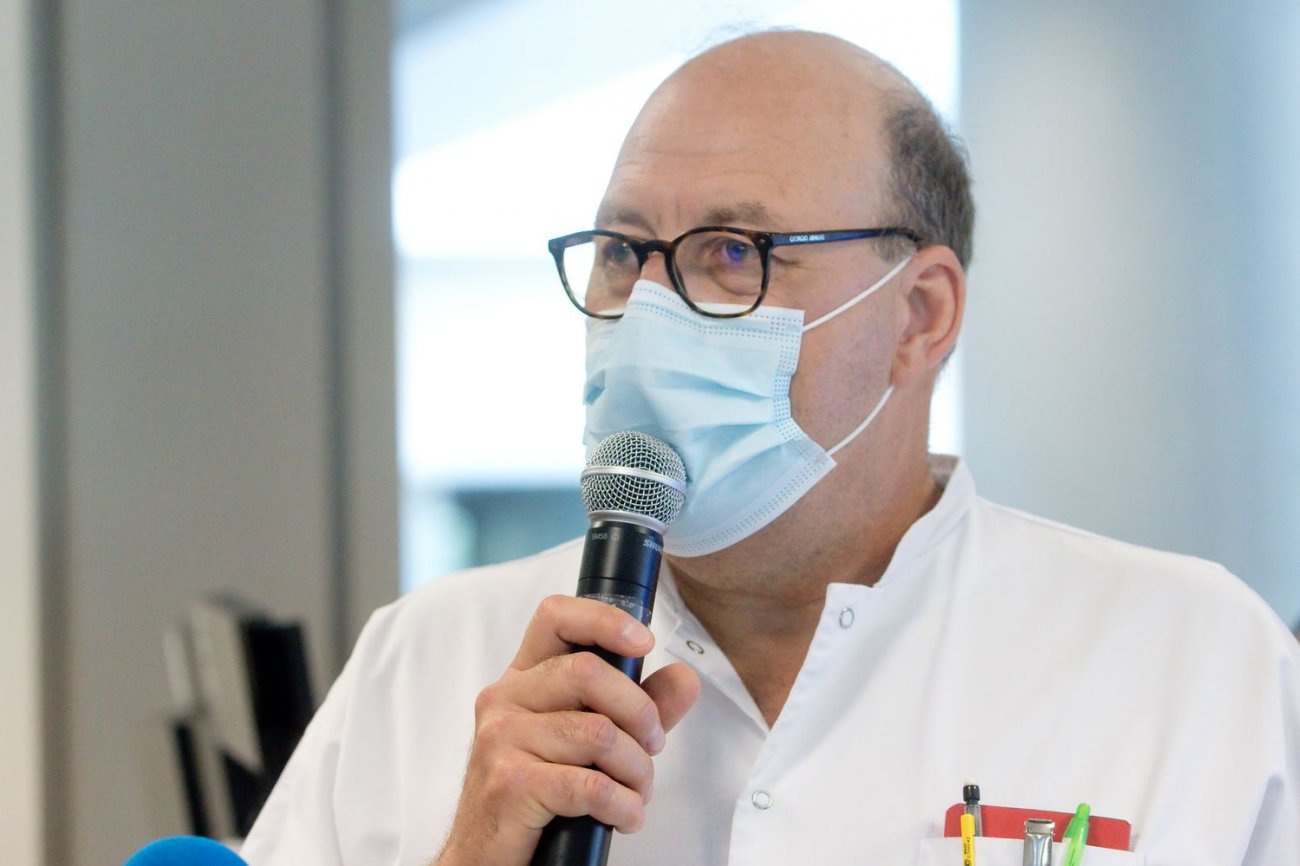
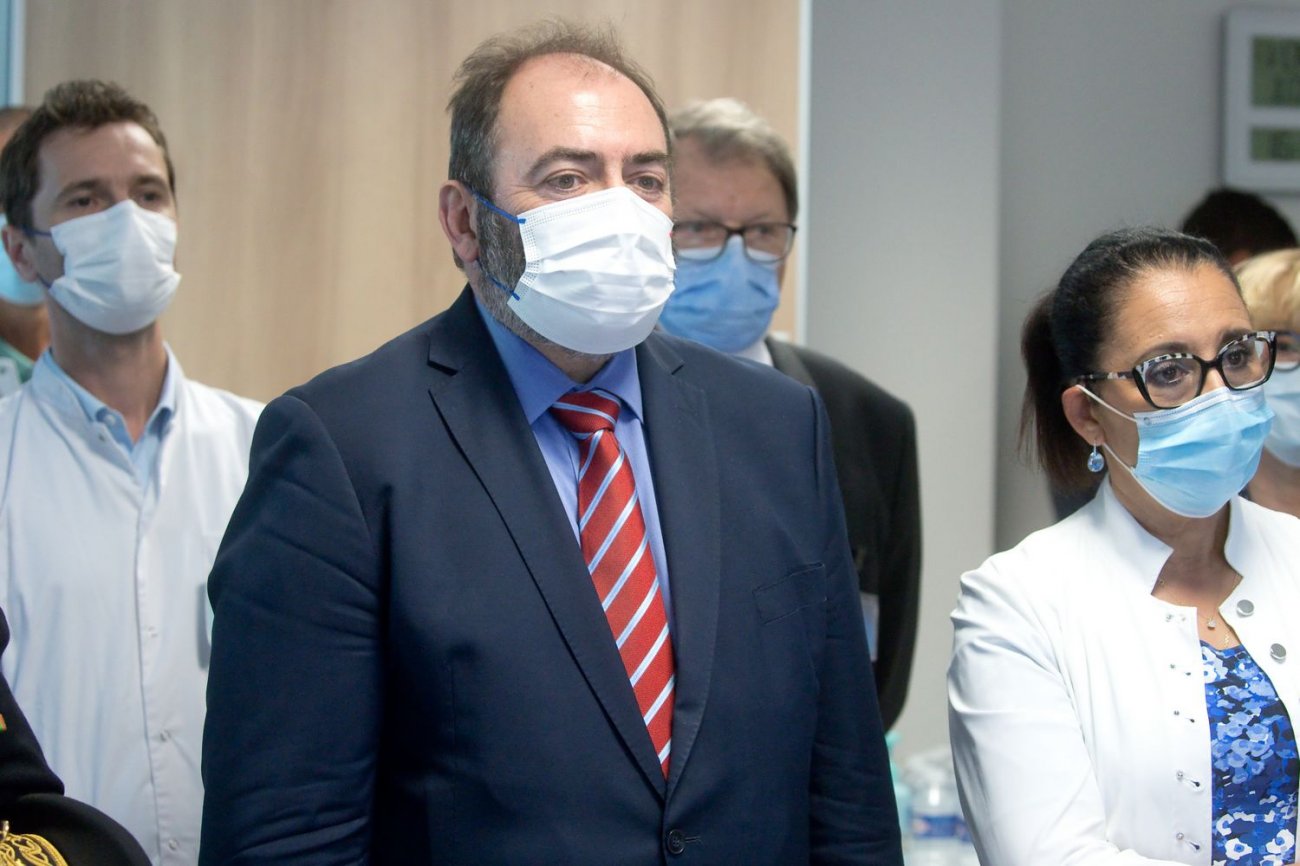
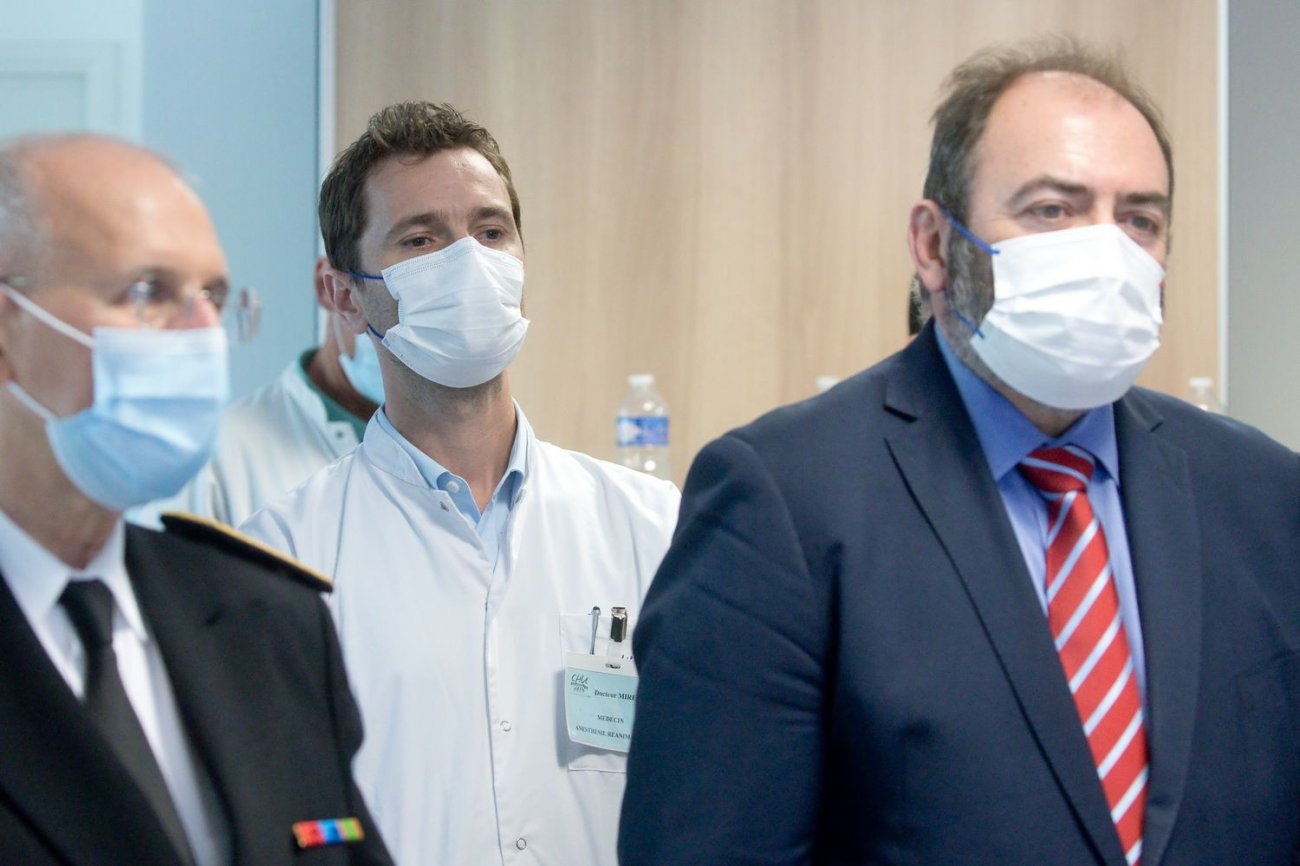
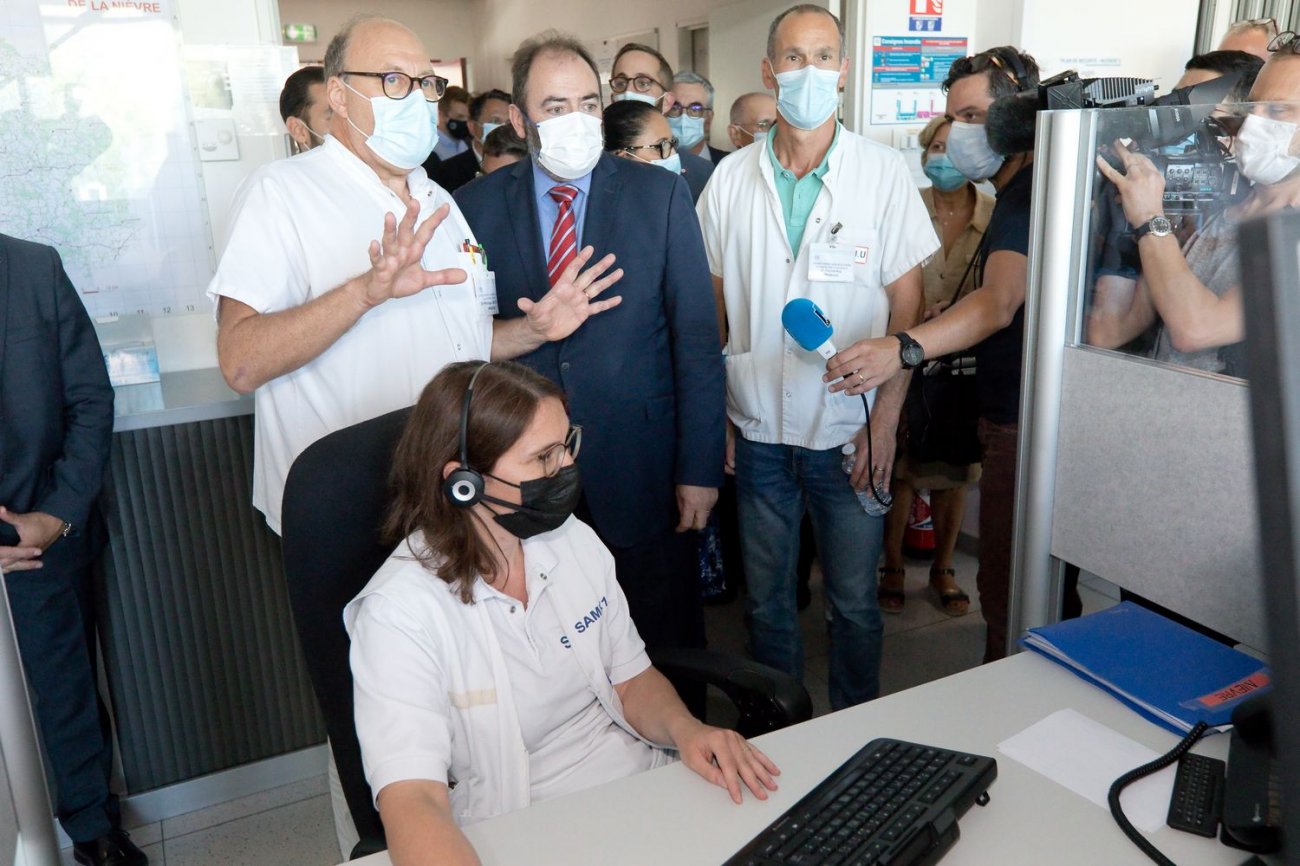
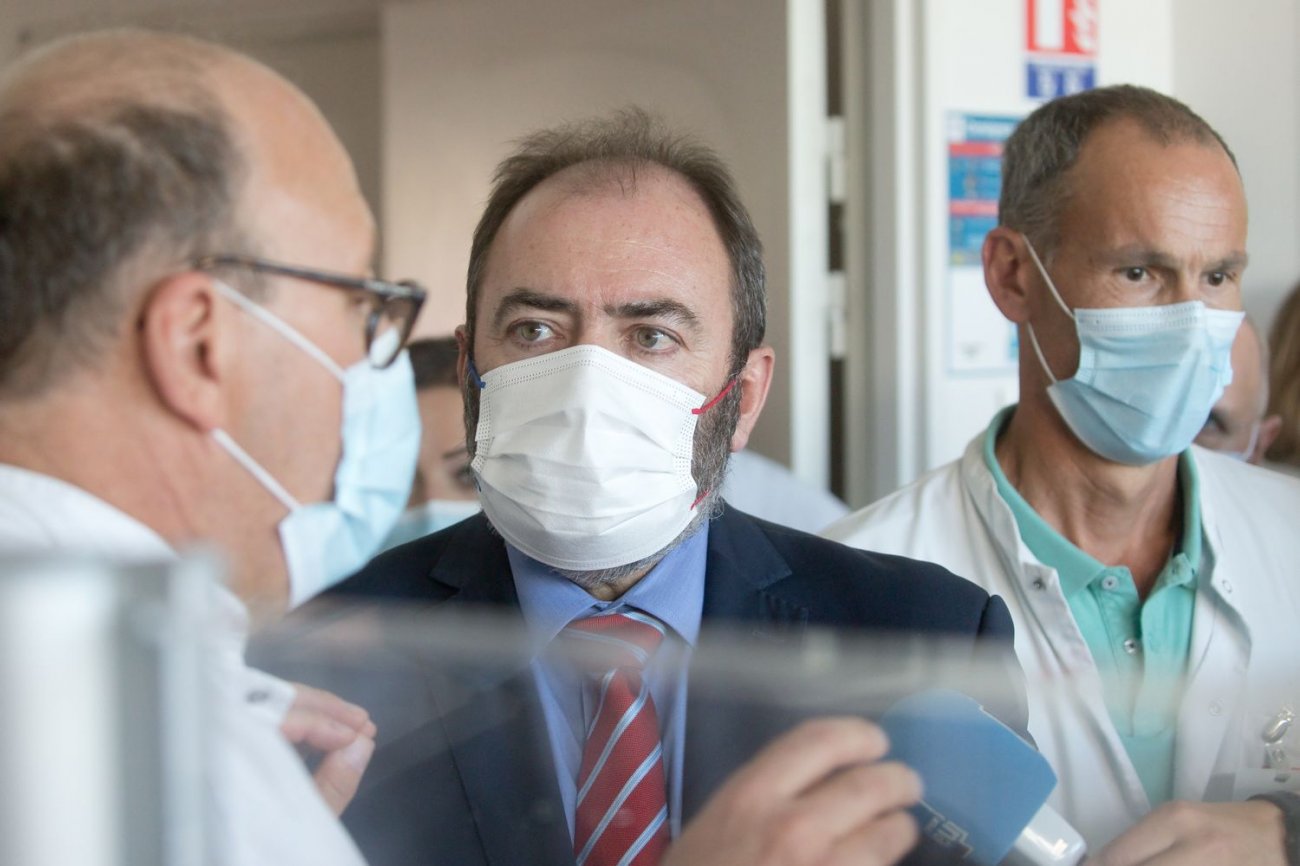
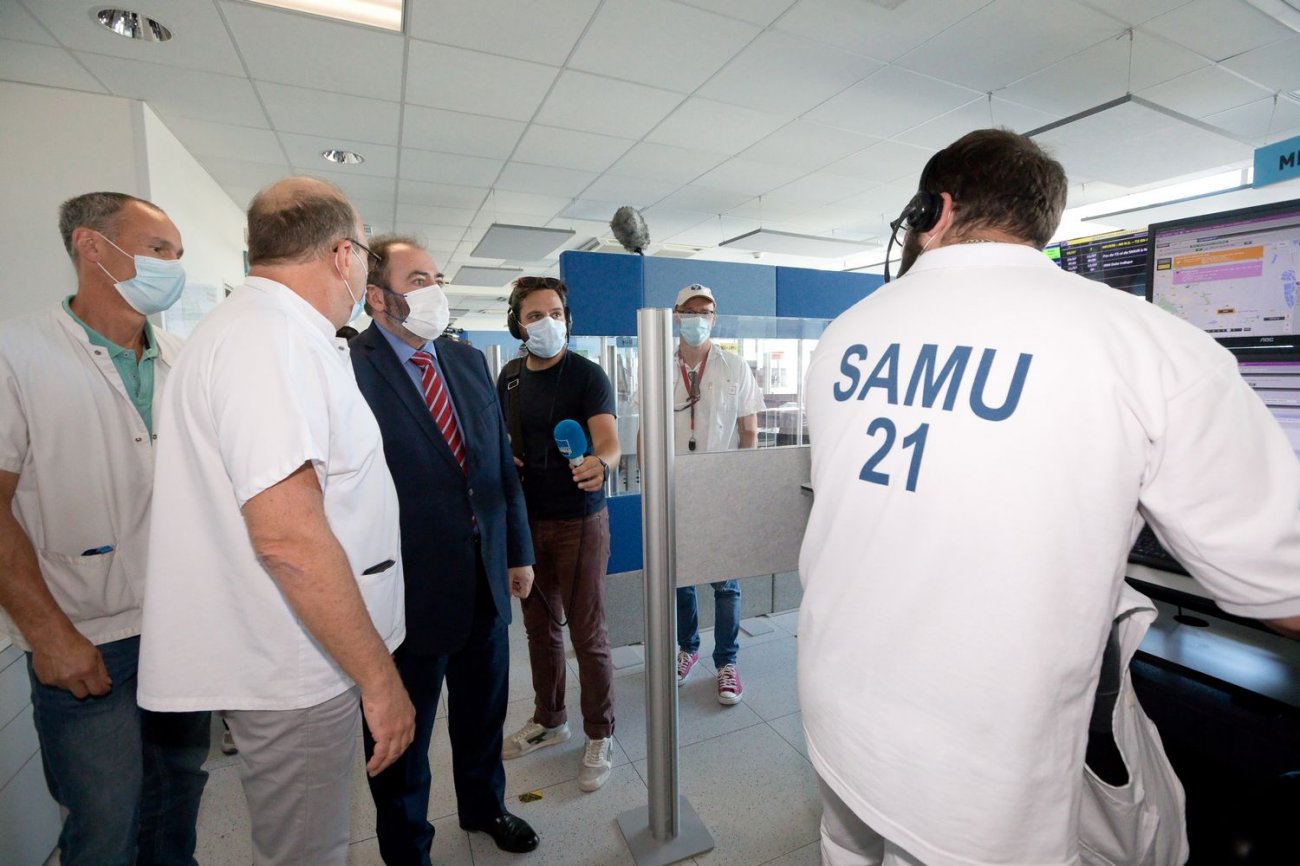
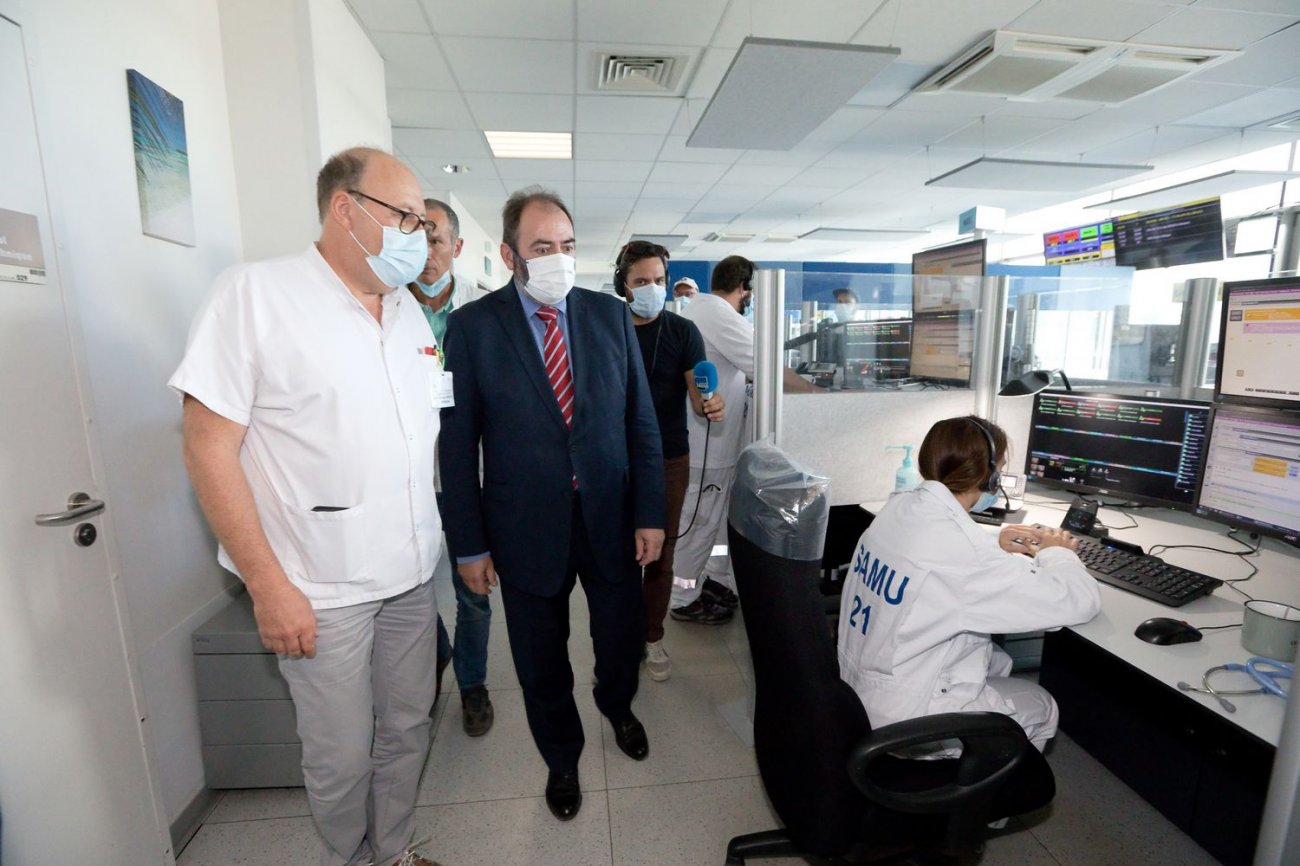
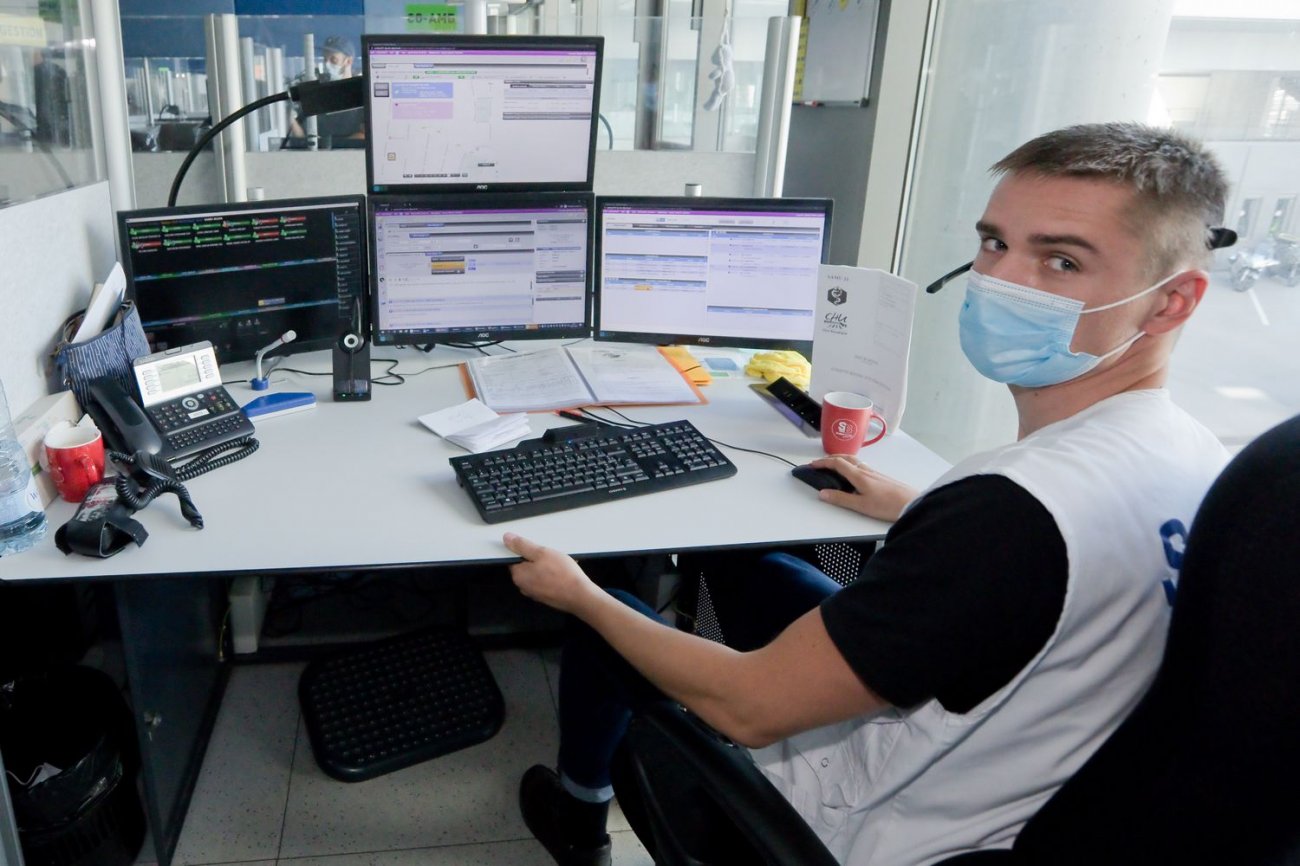
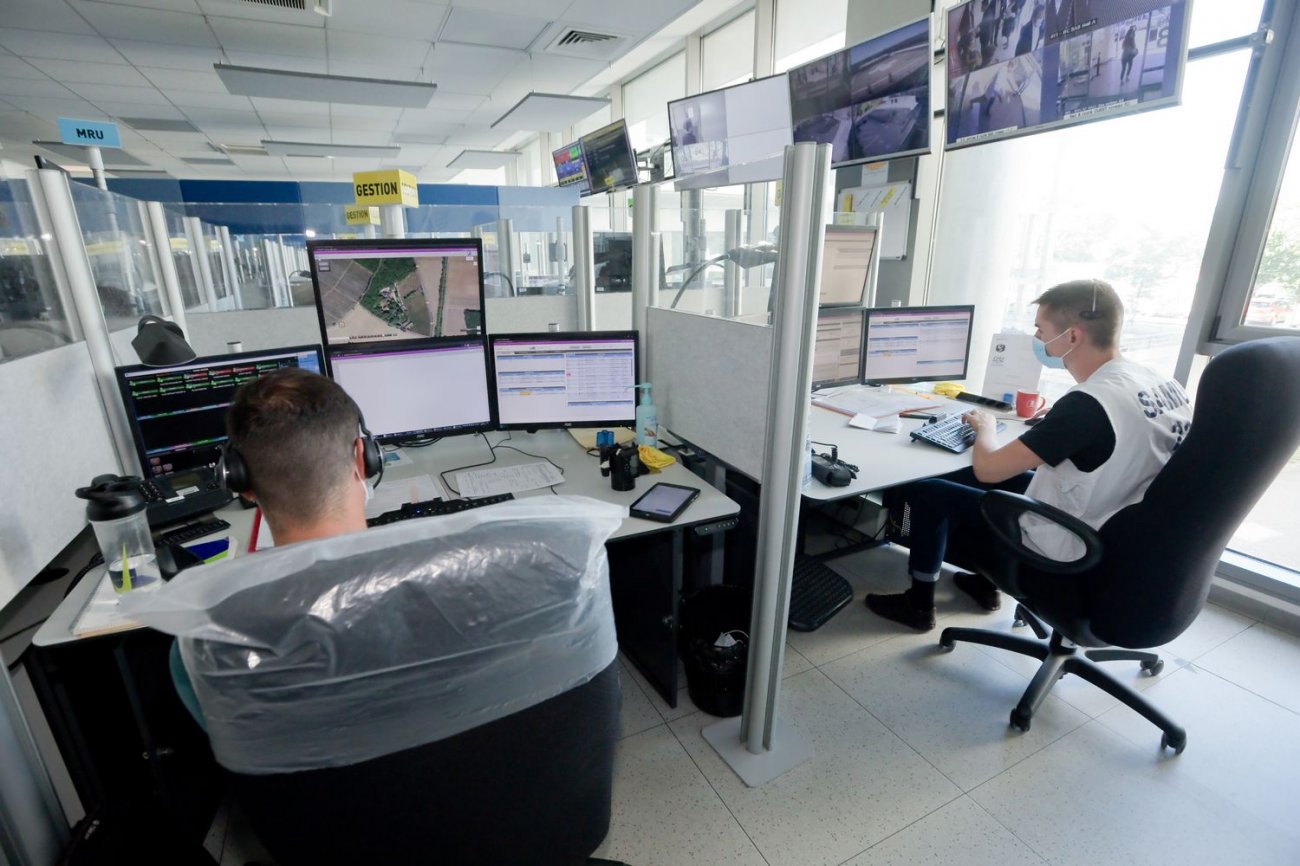
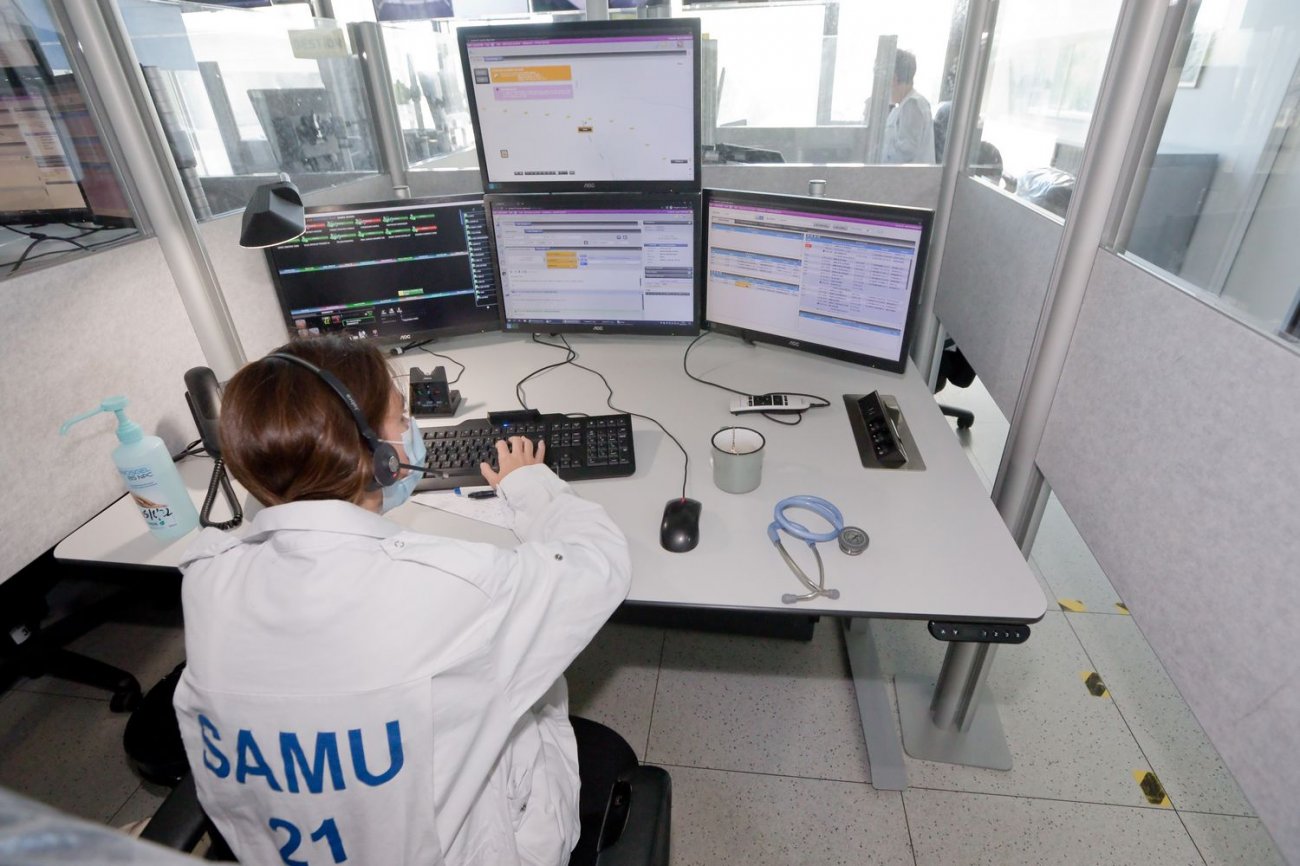
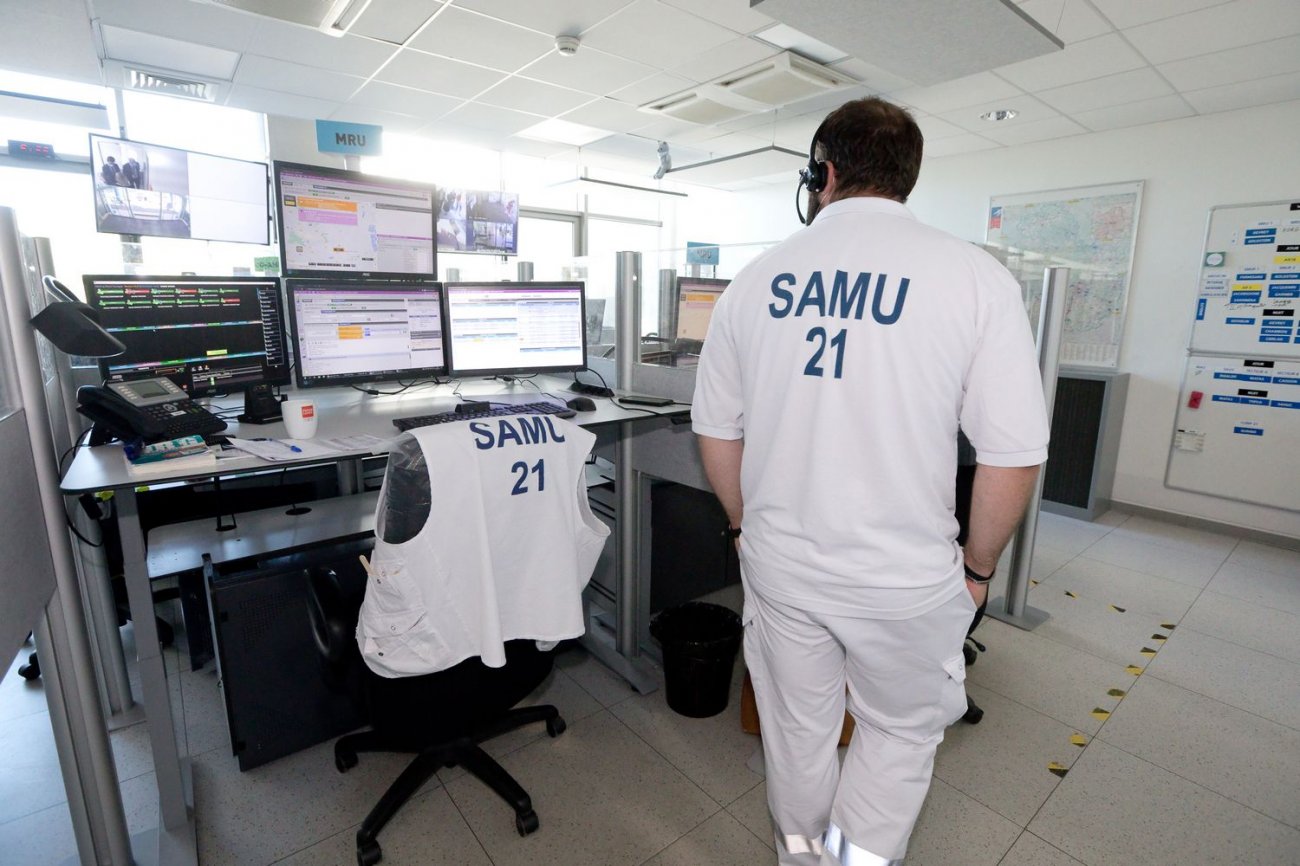
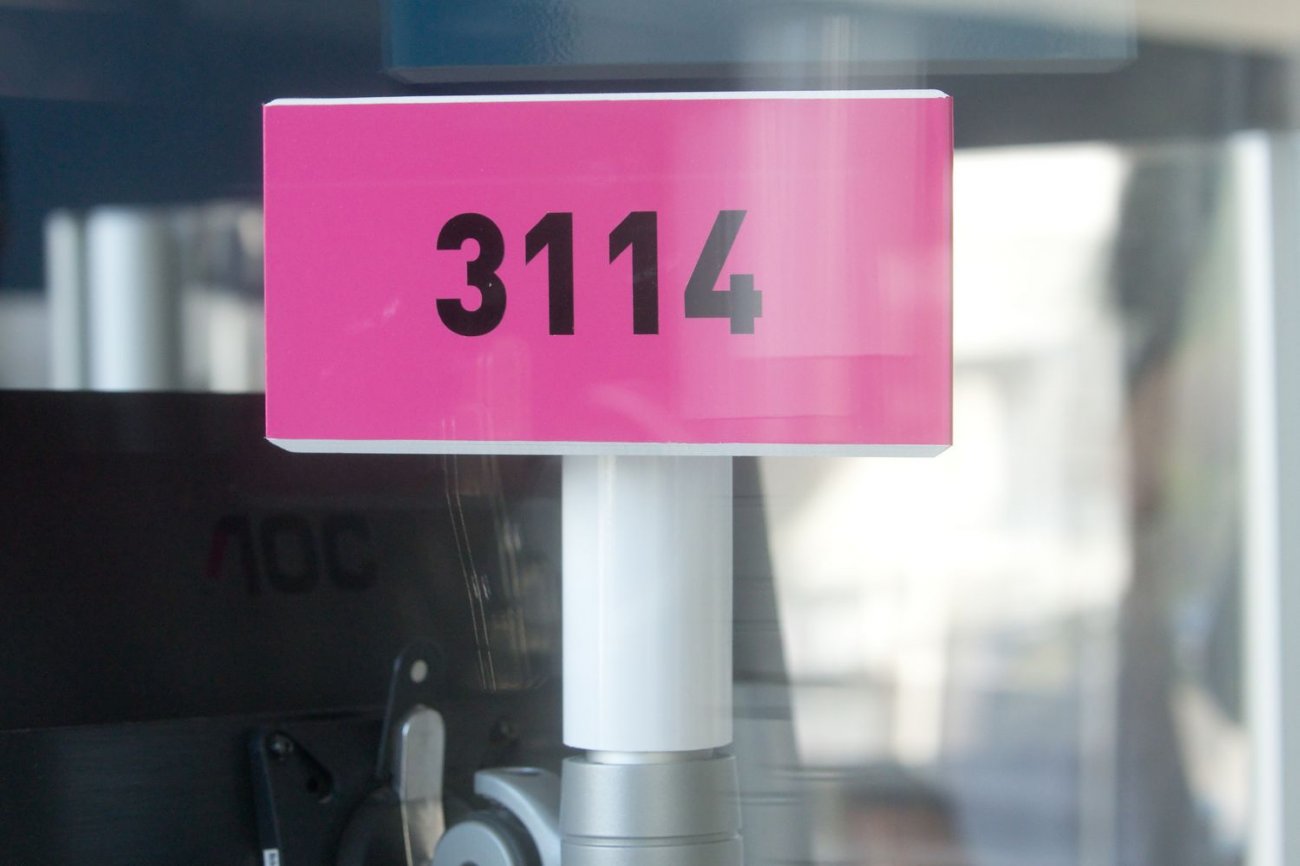
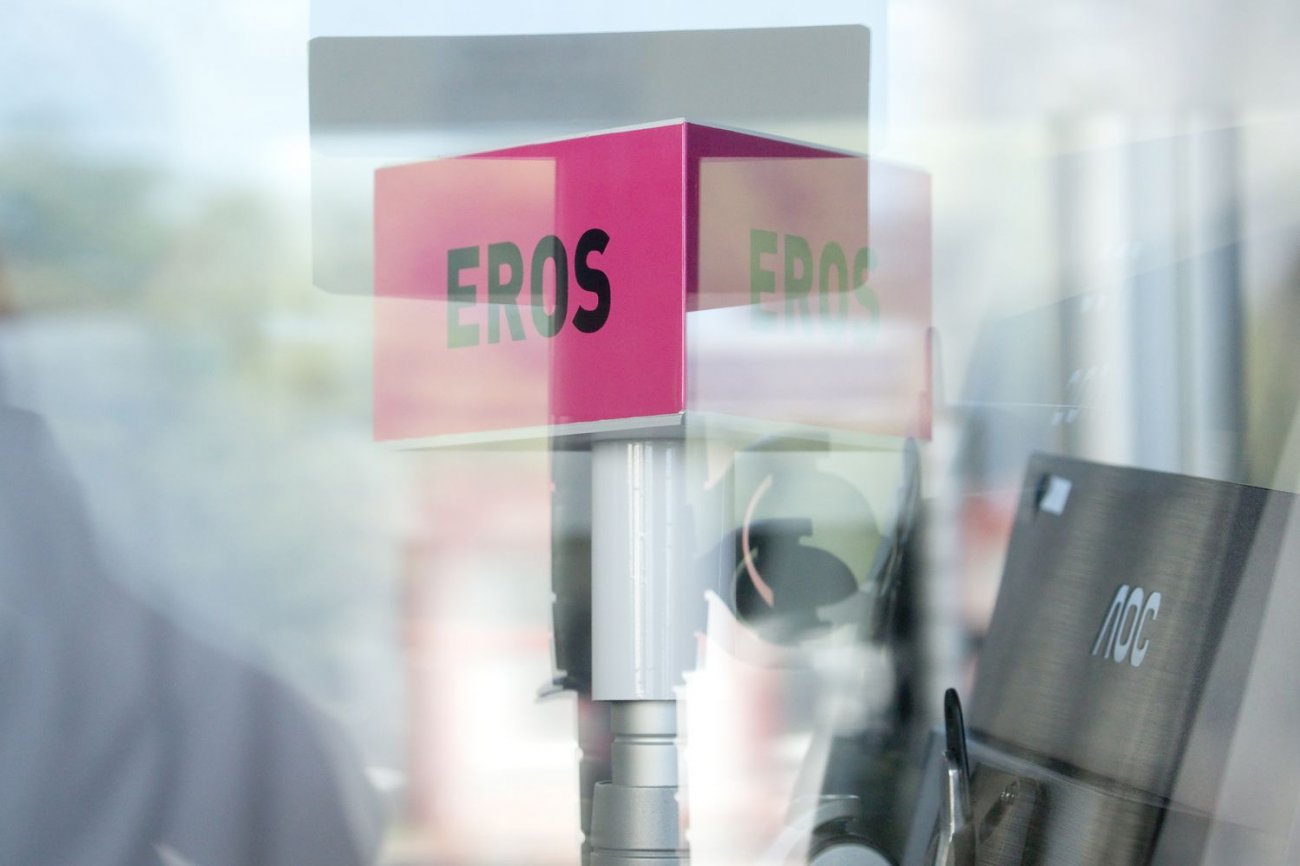
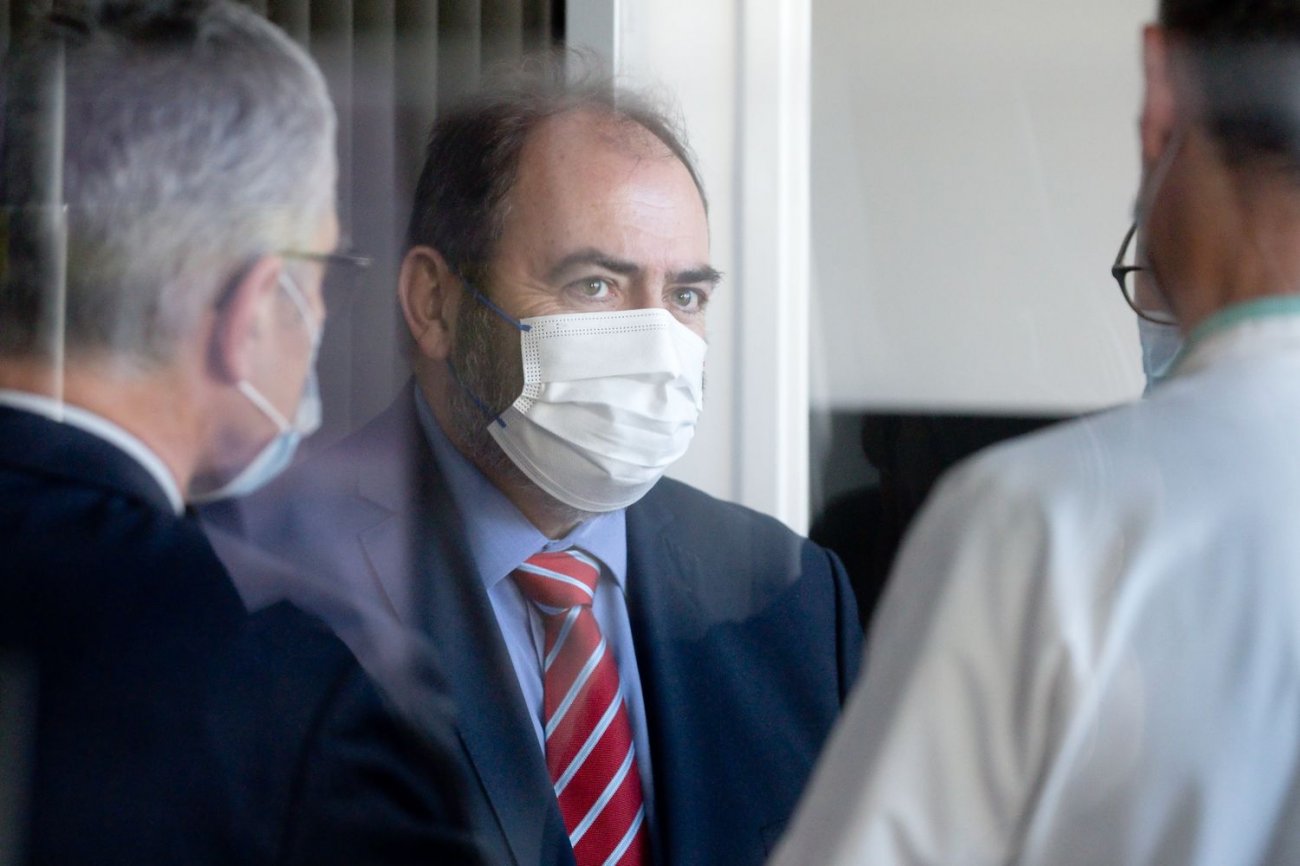
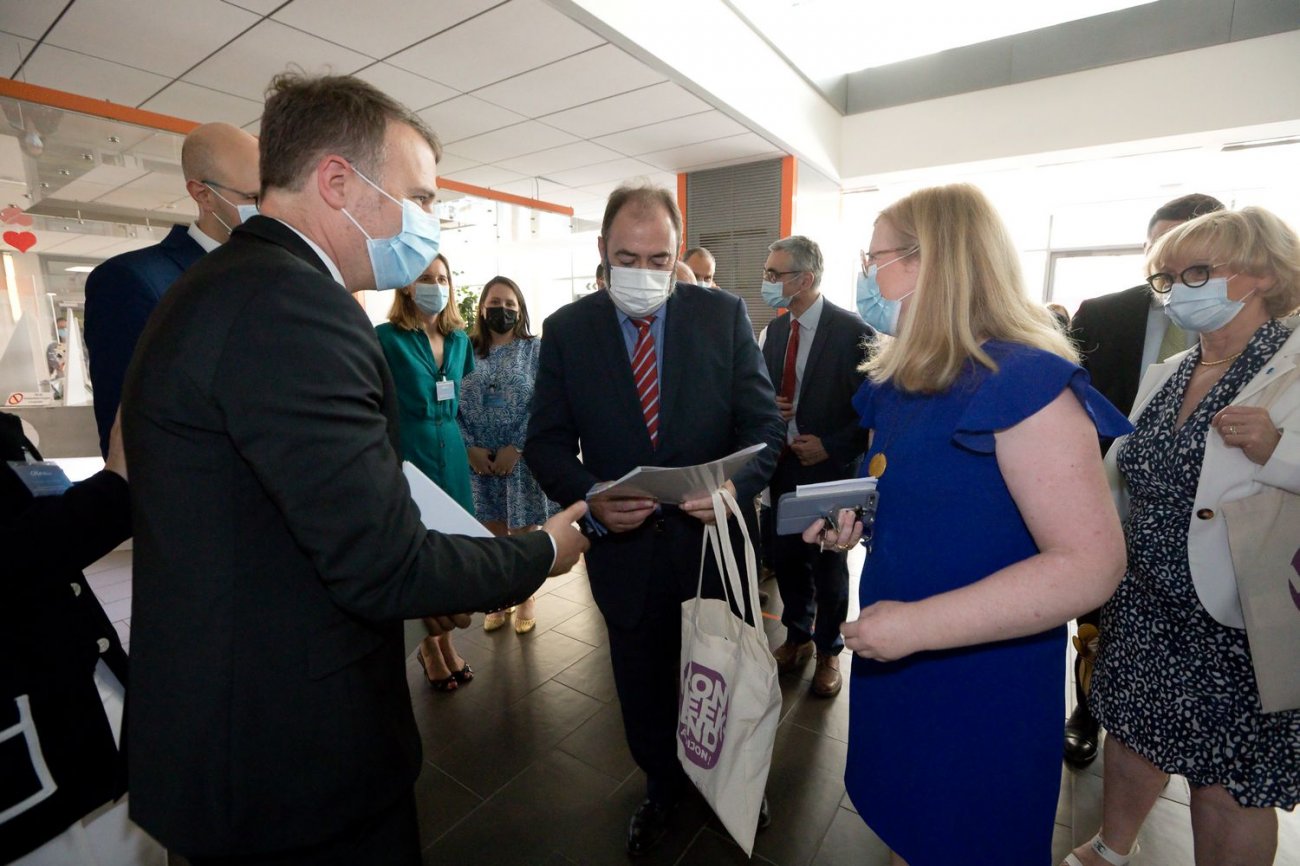
–
